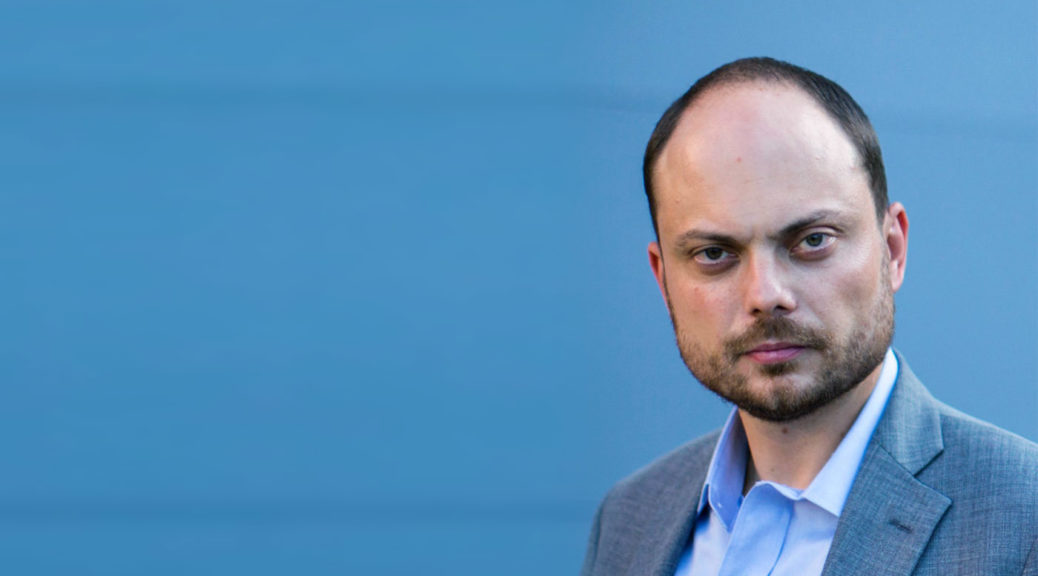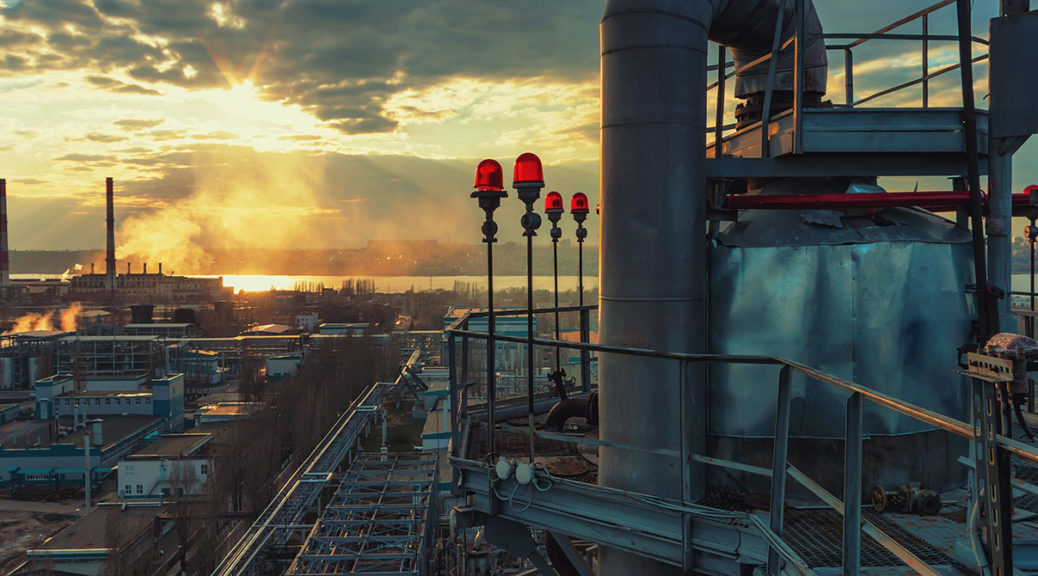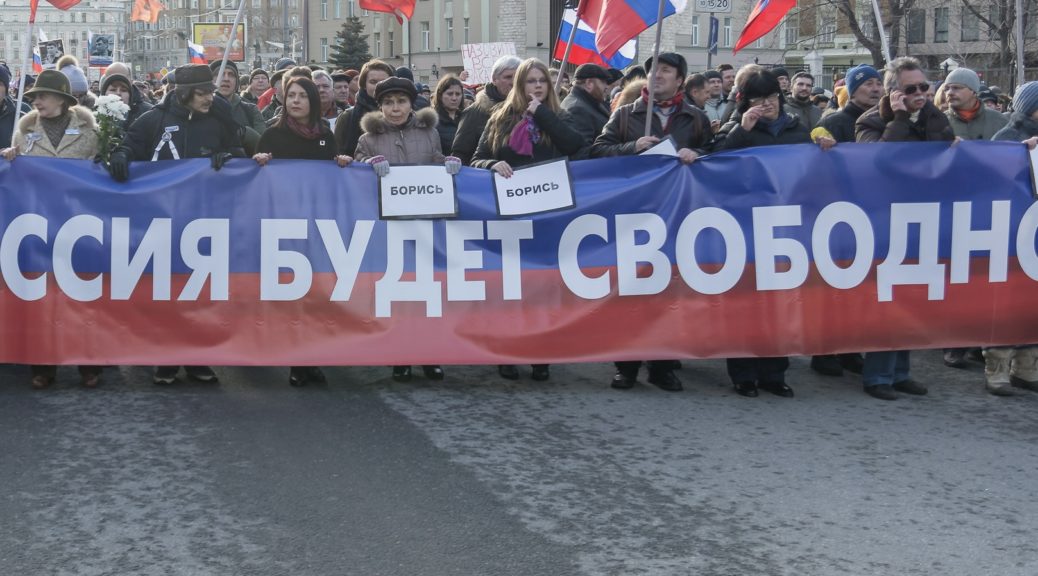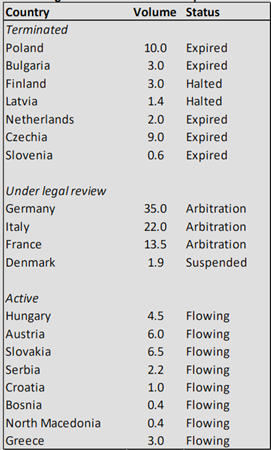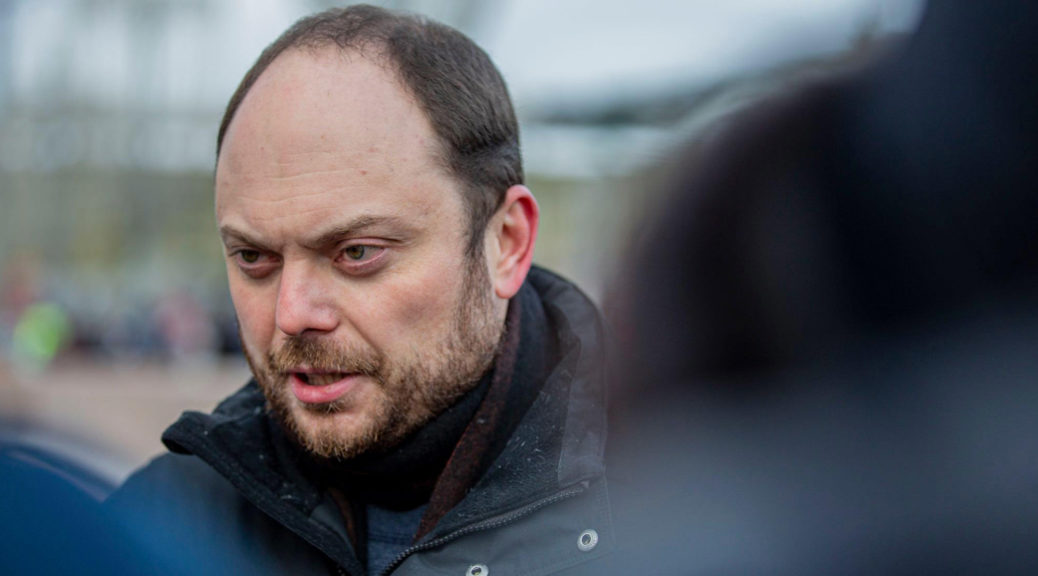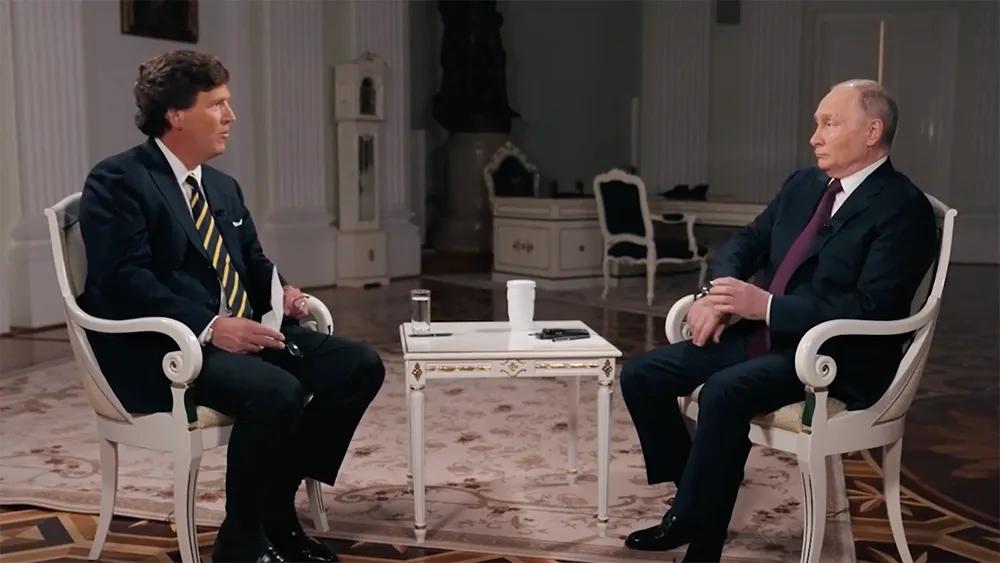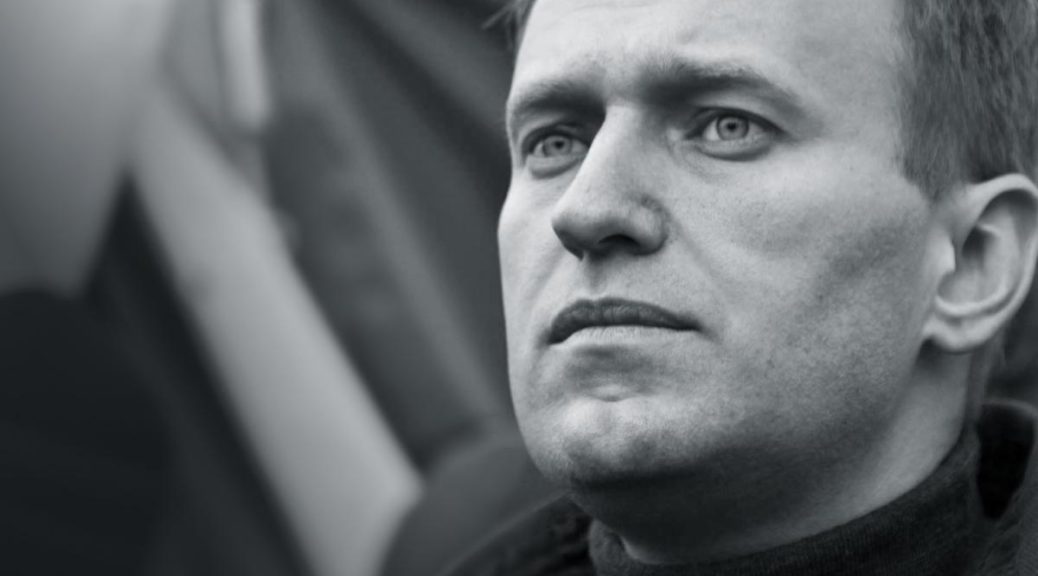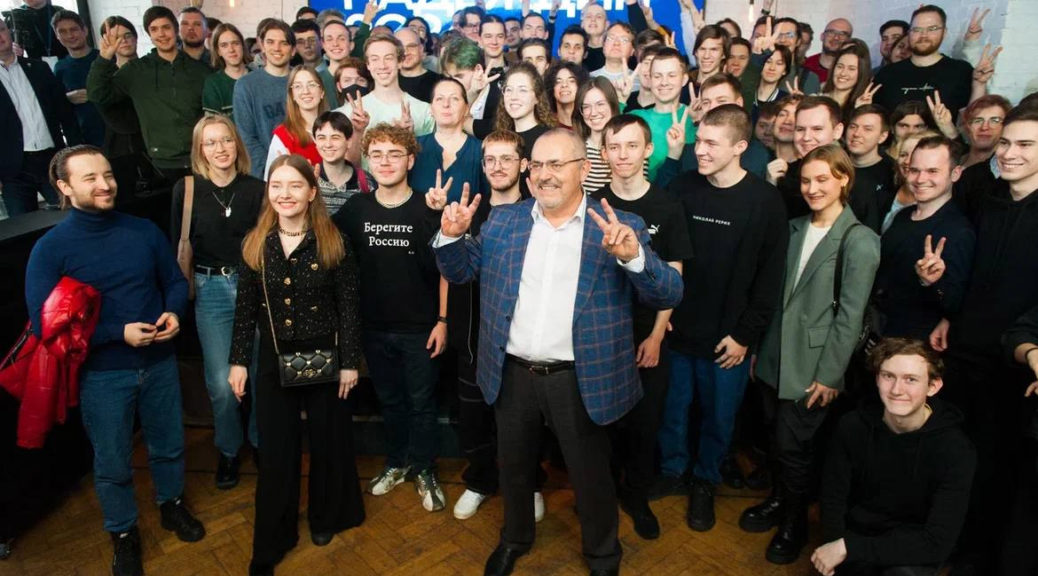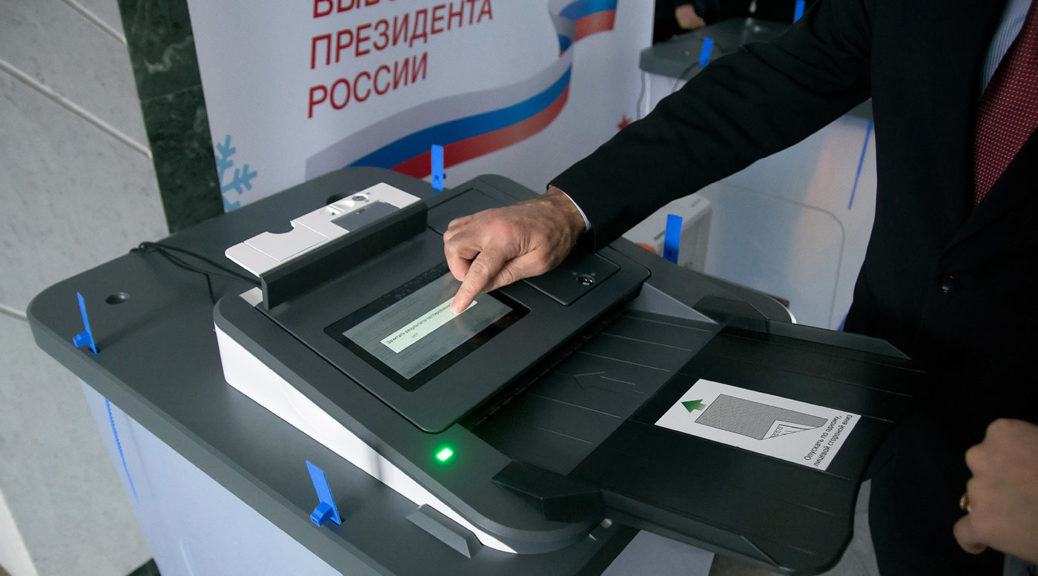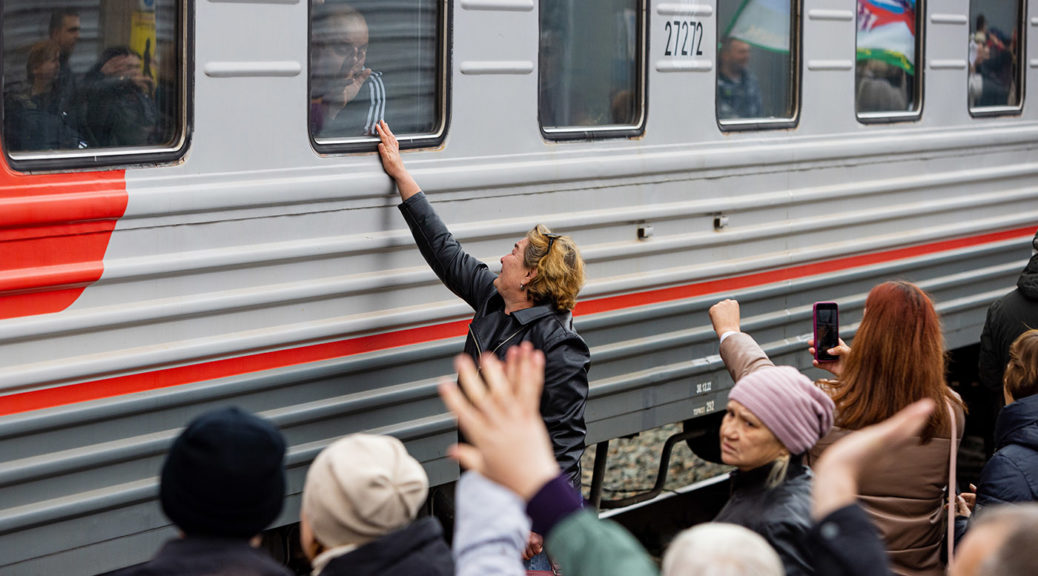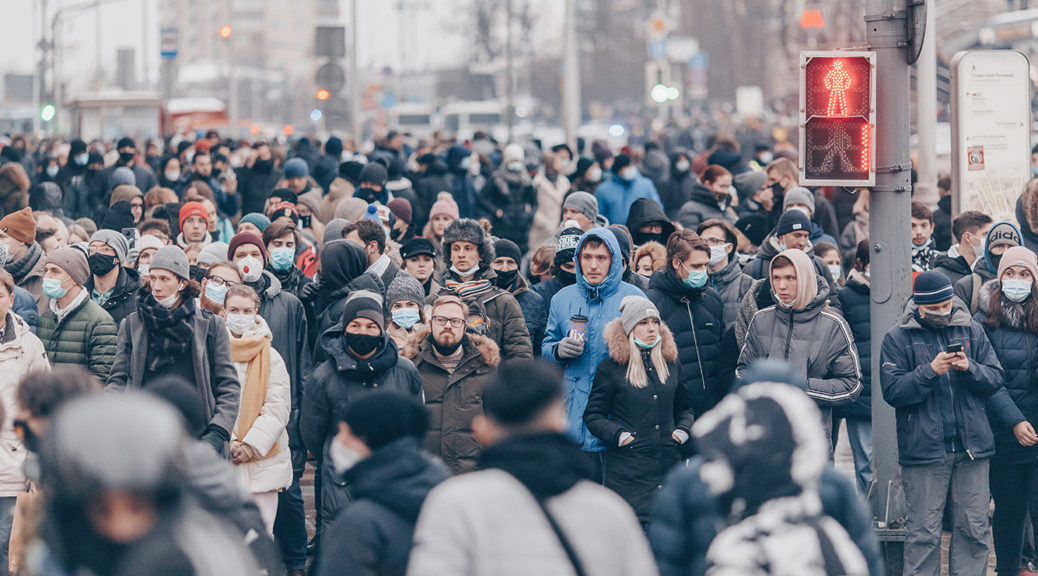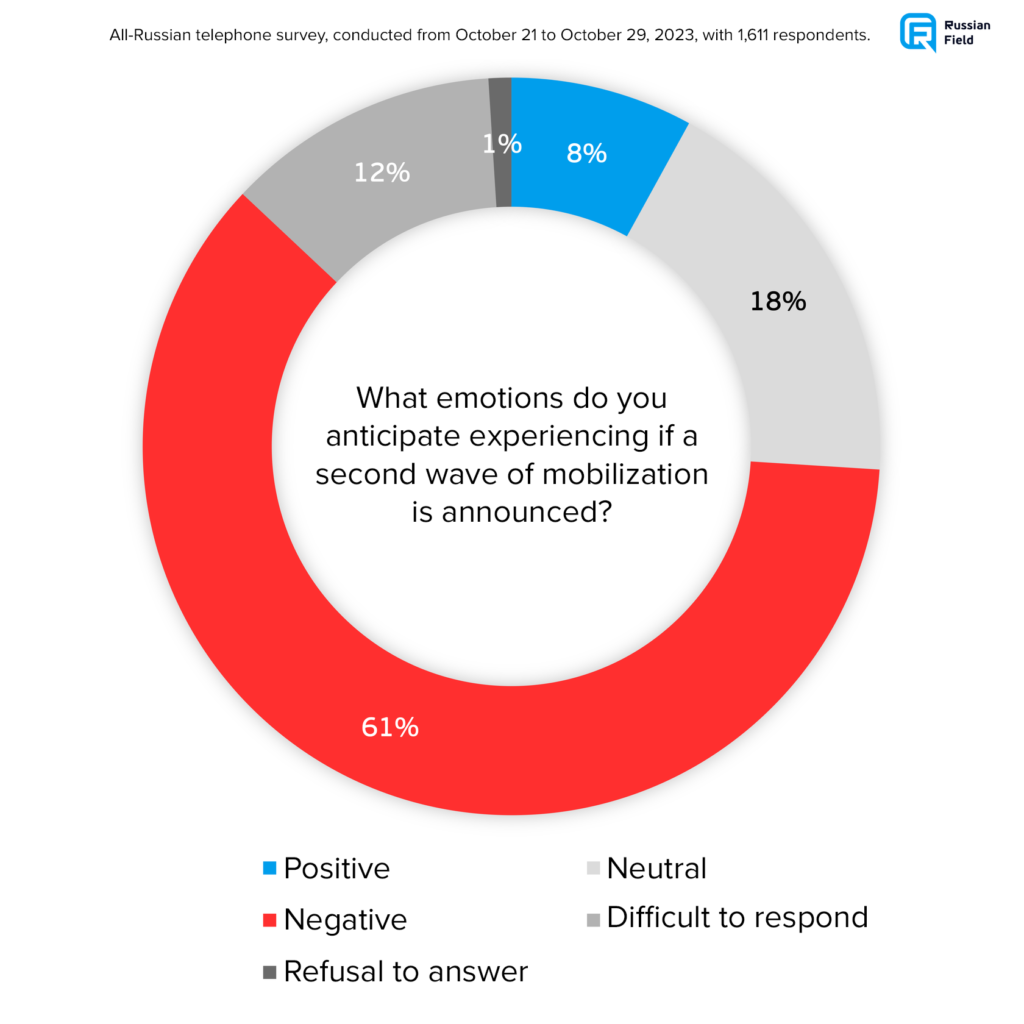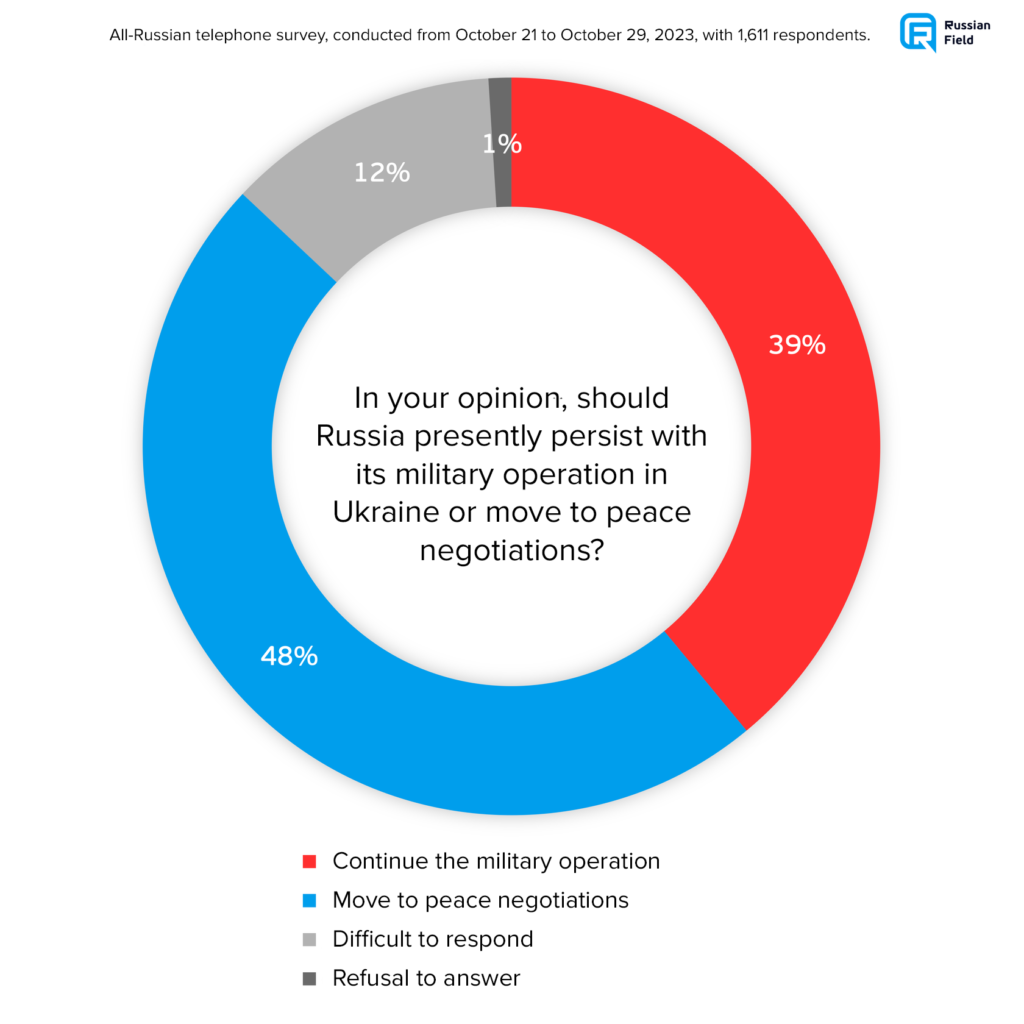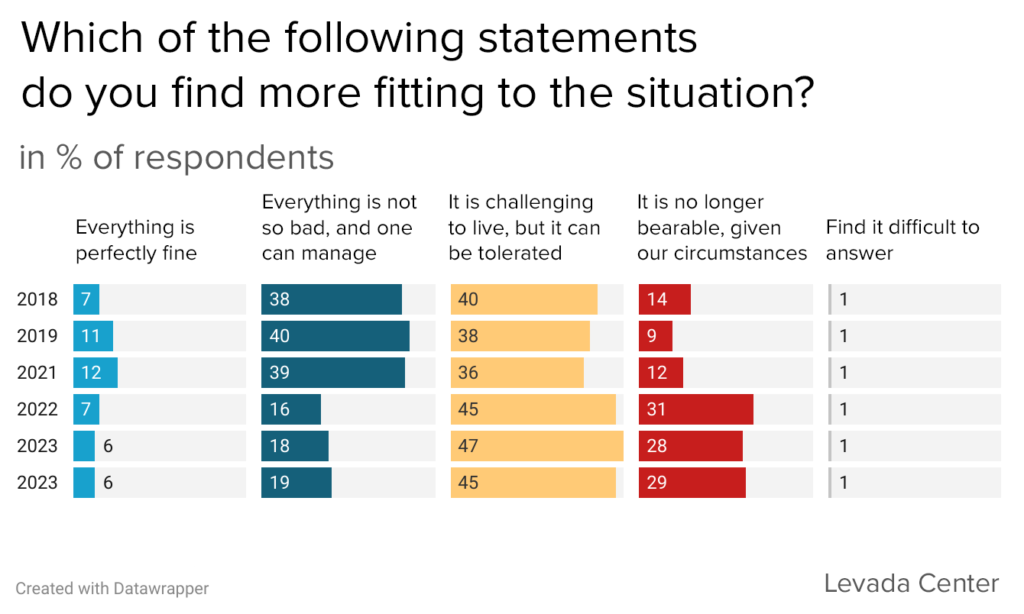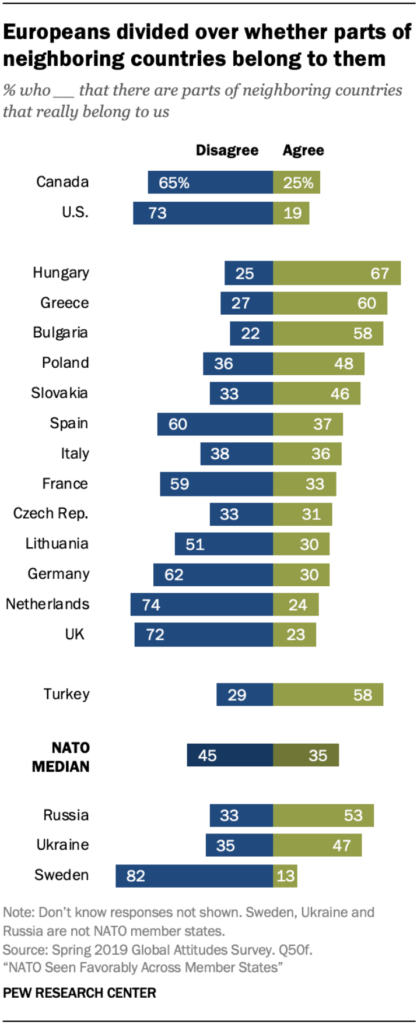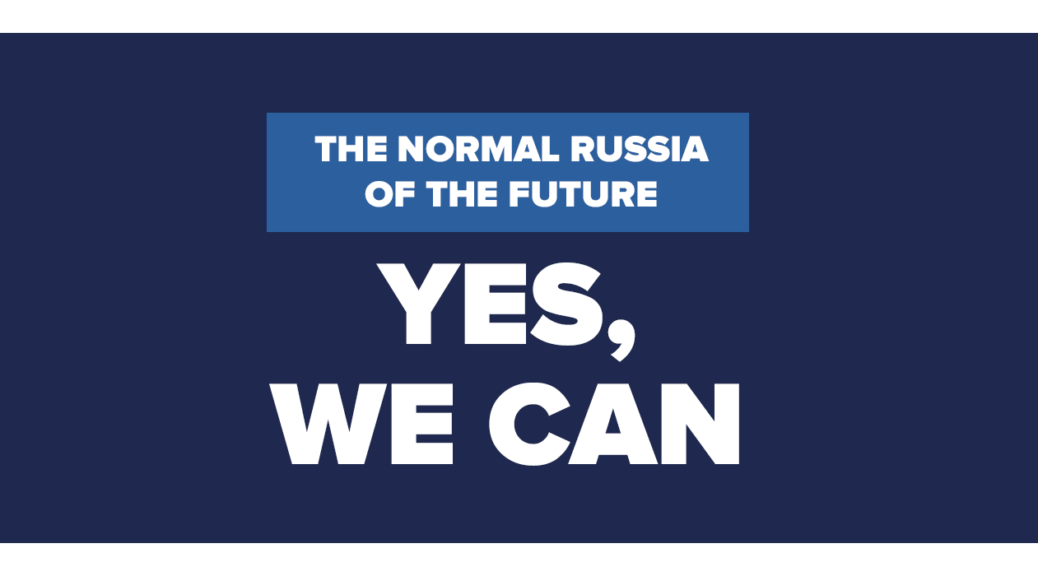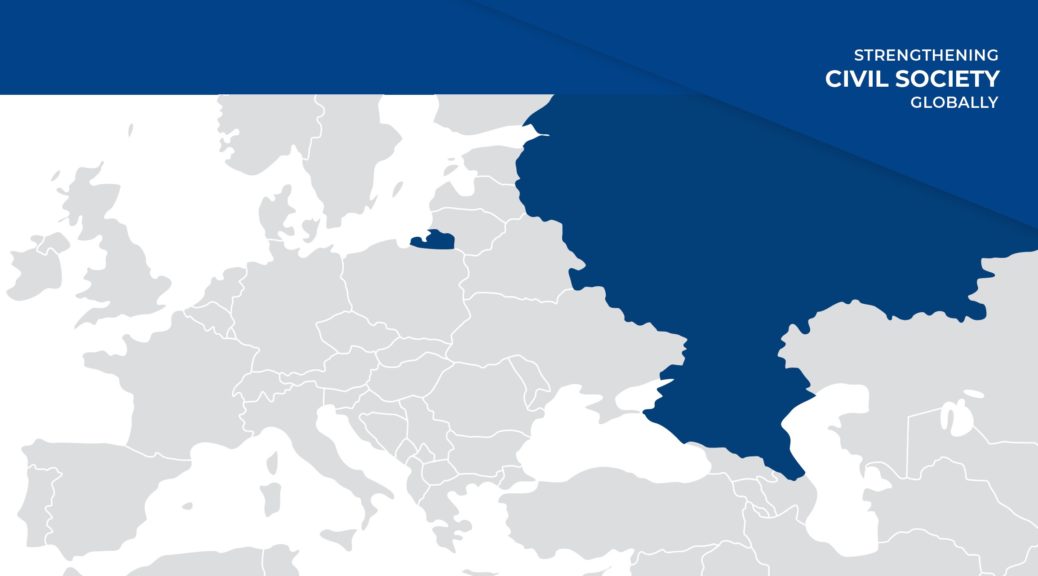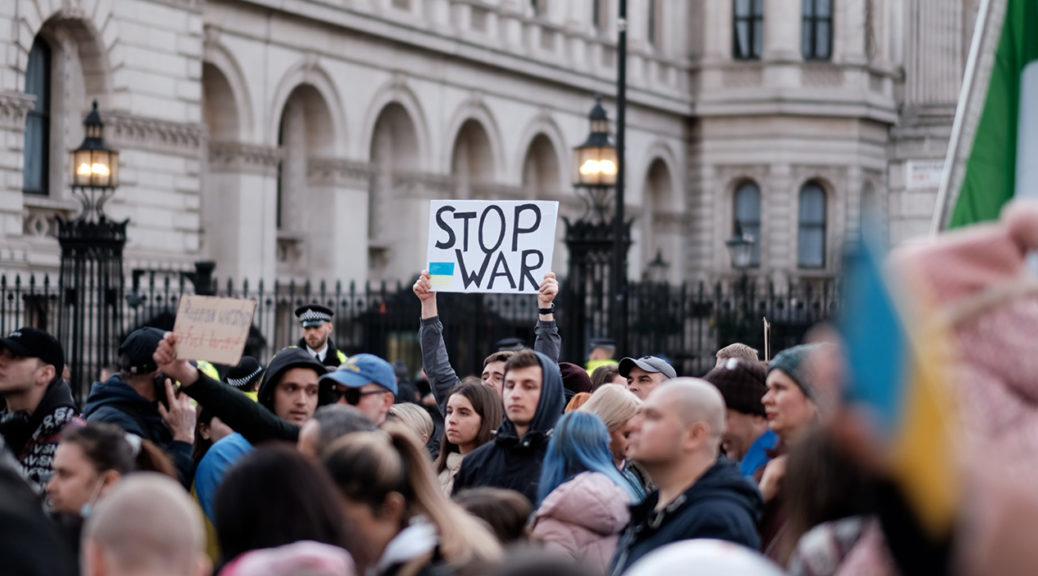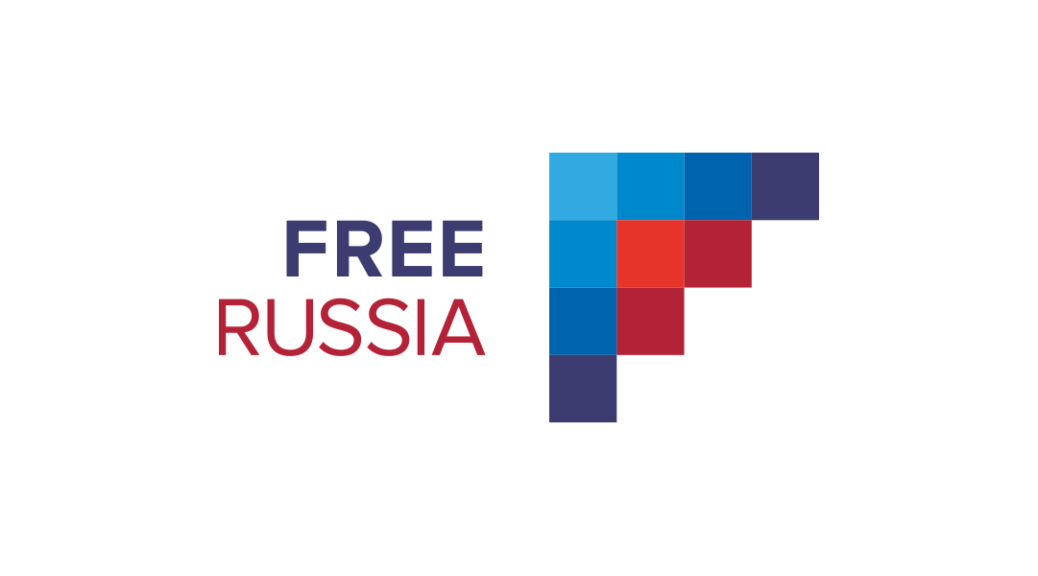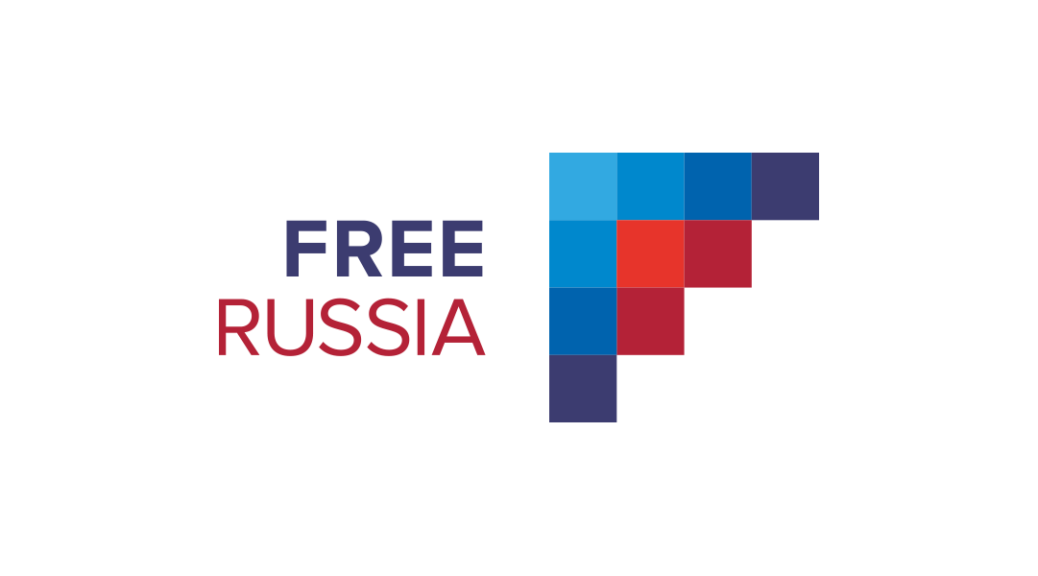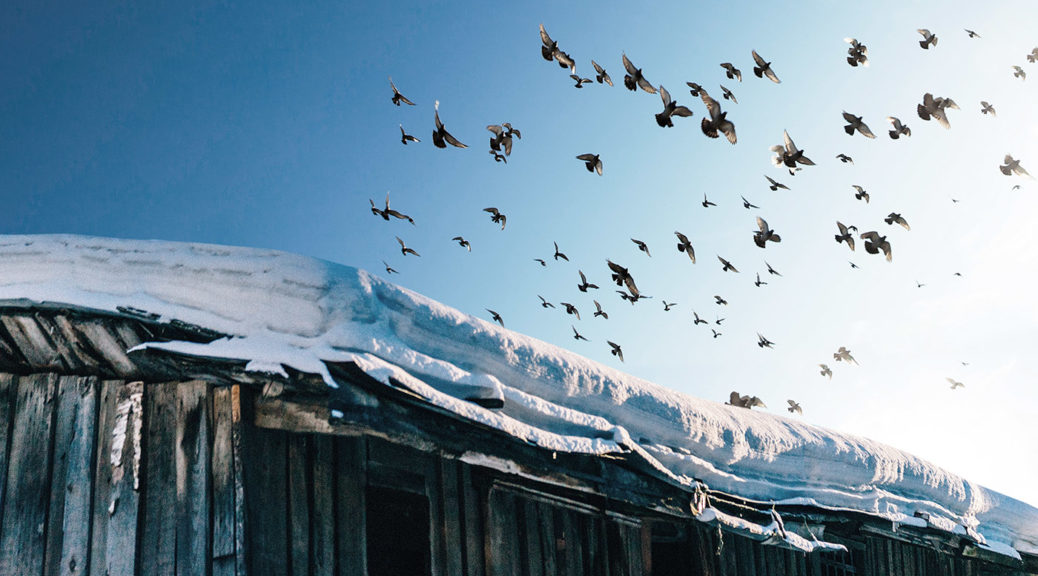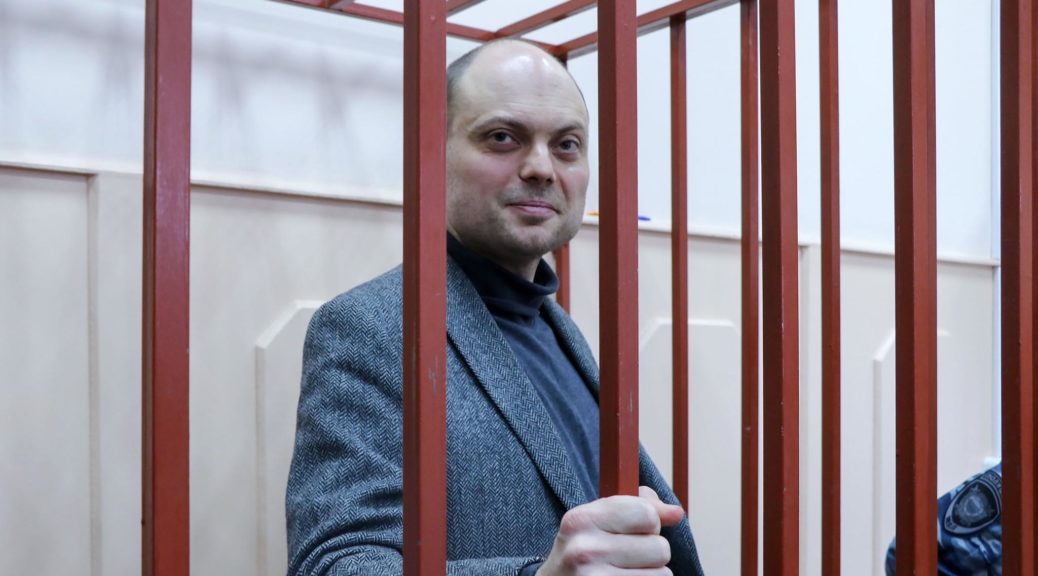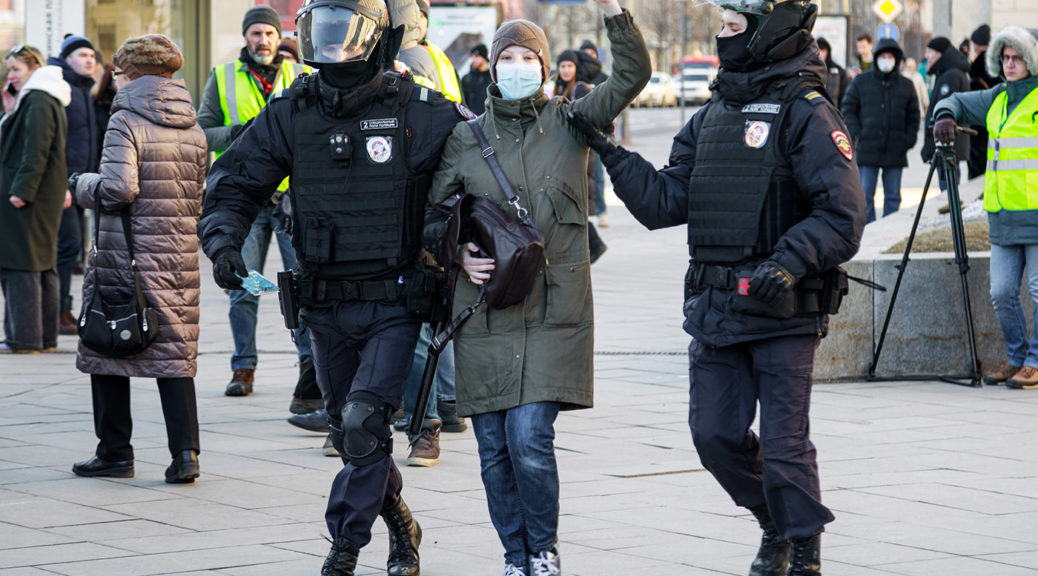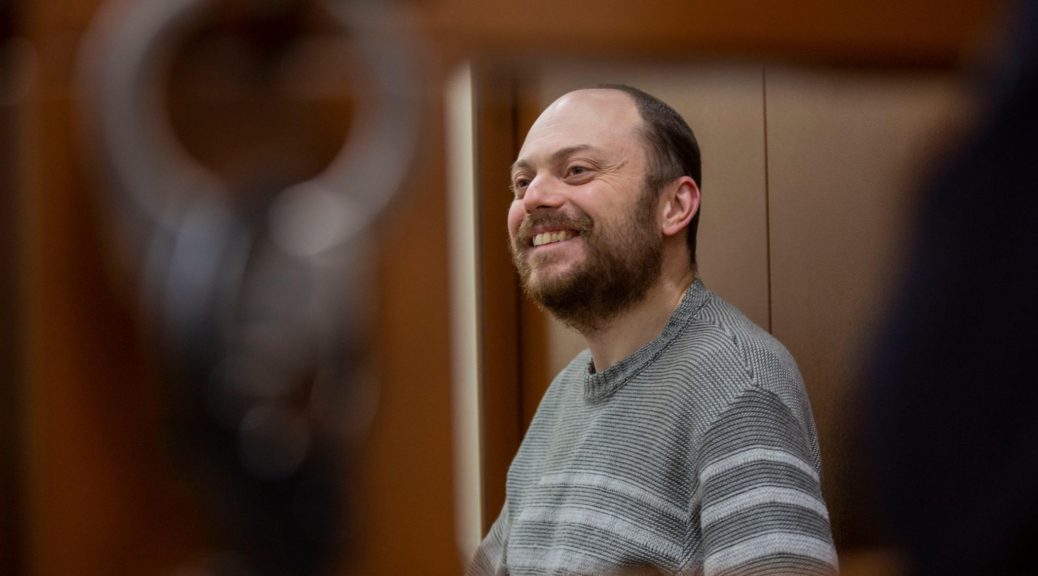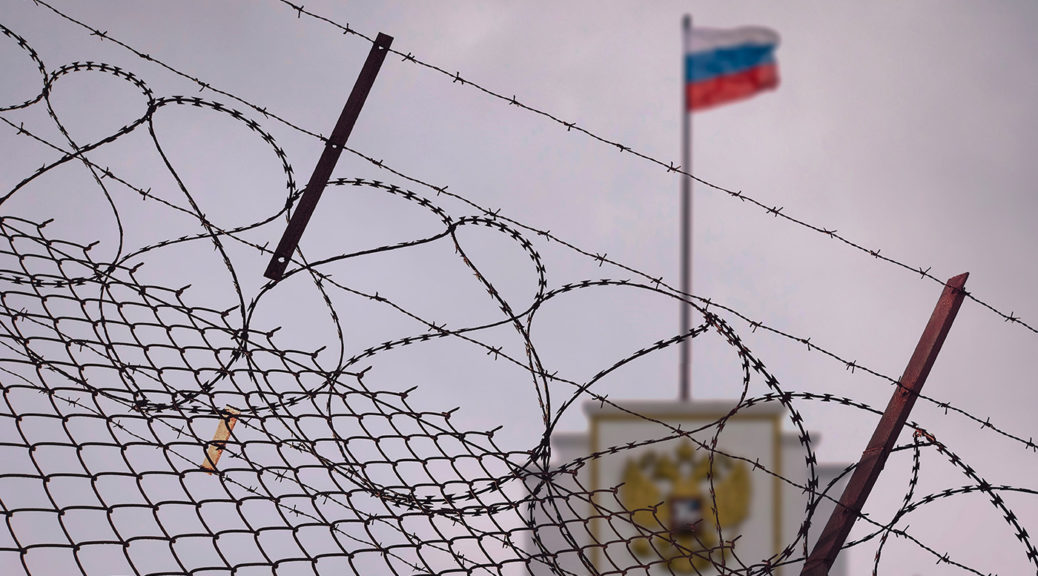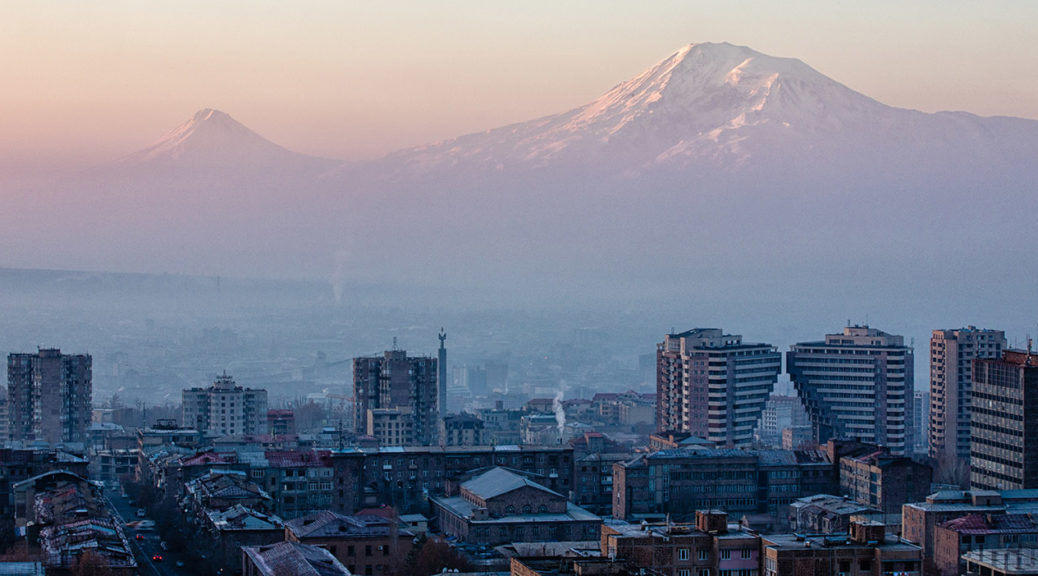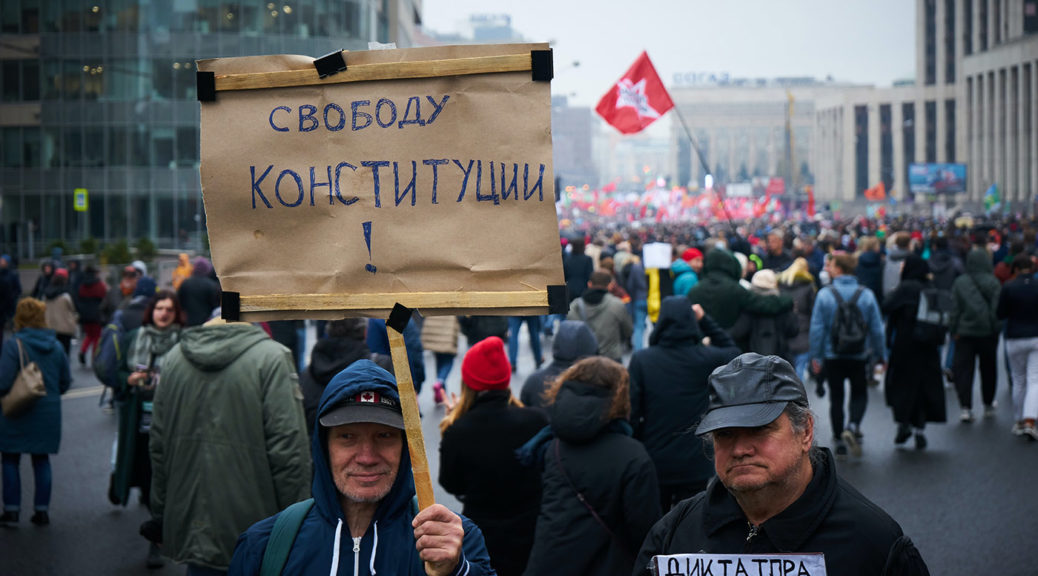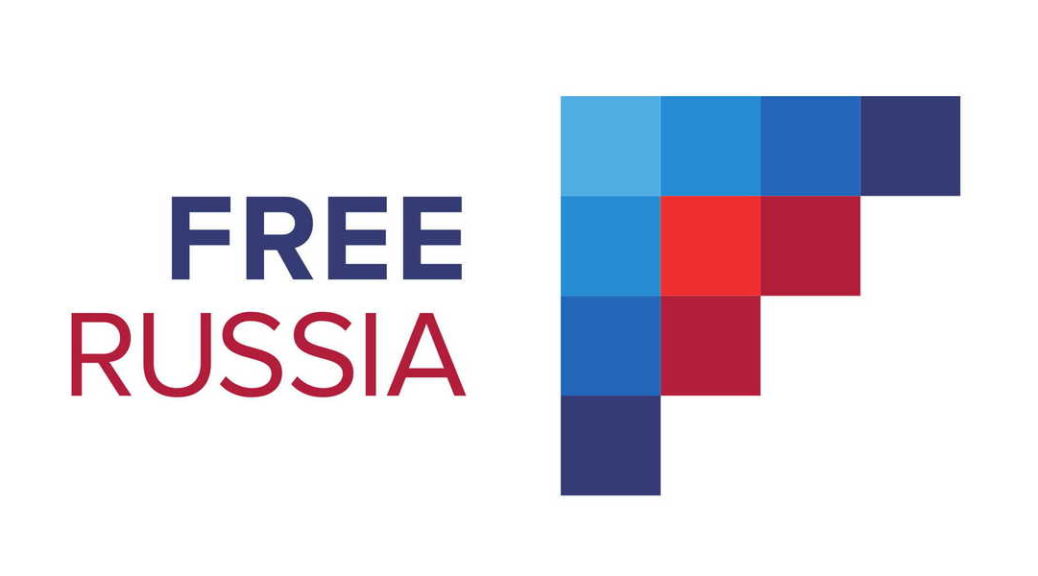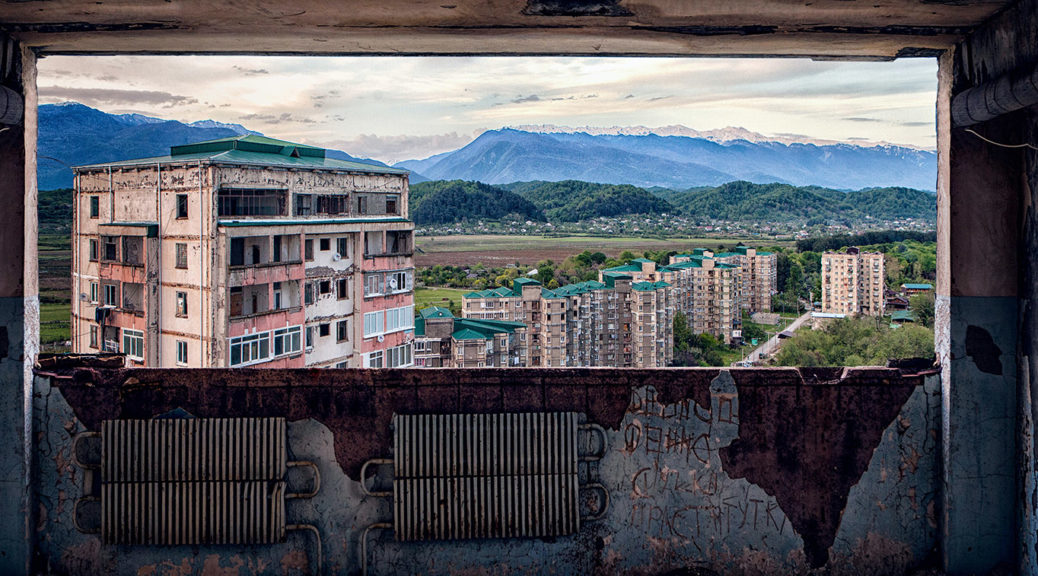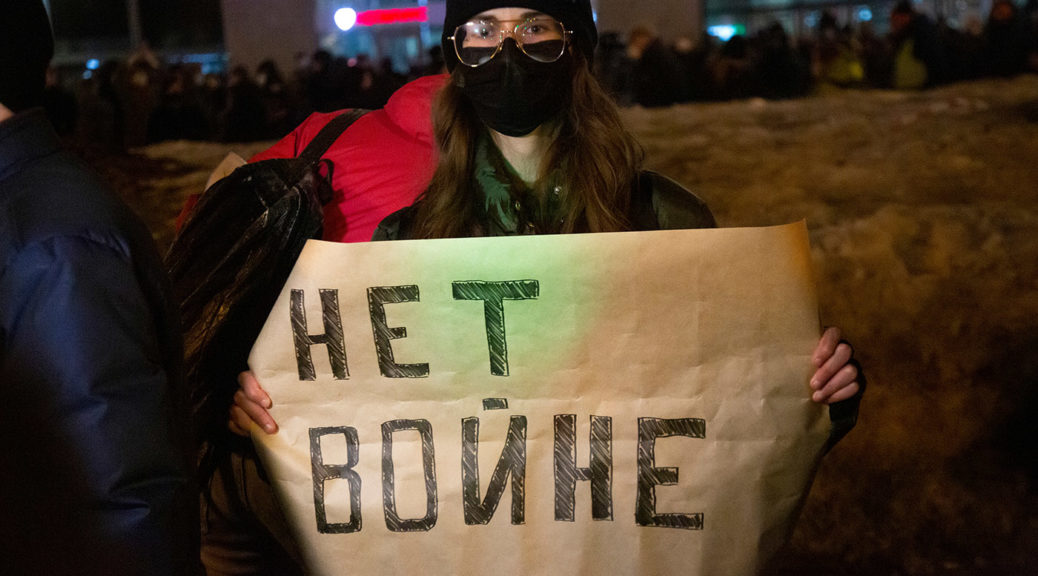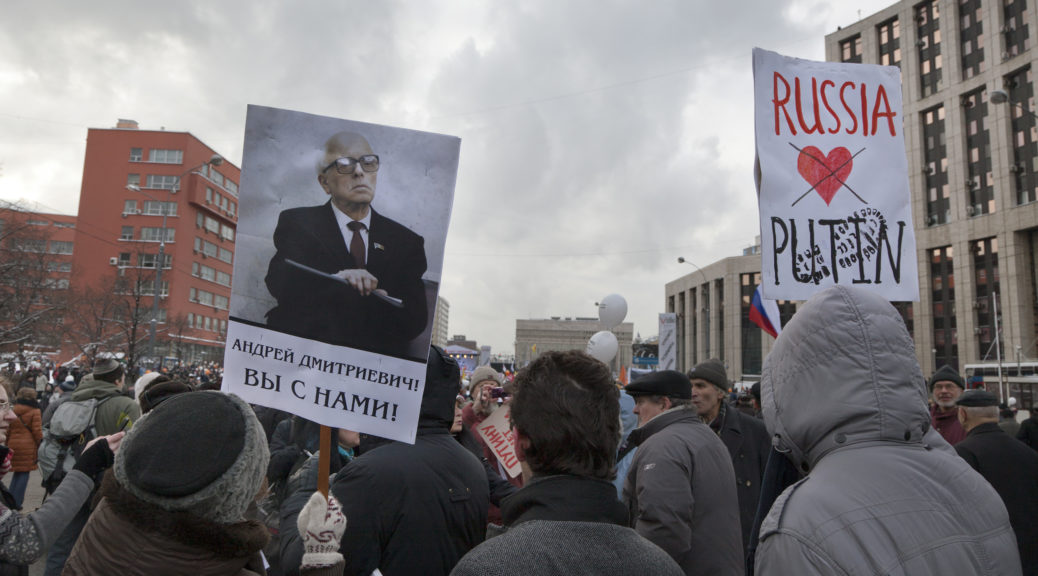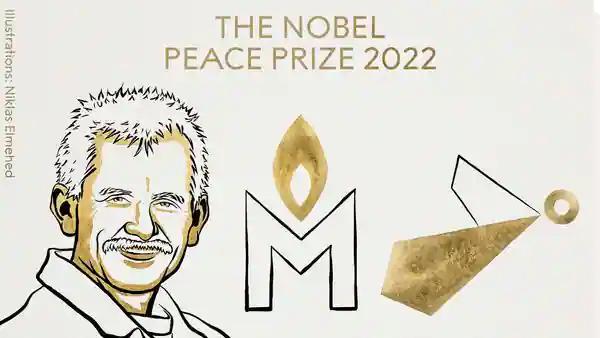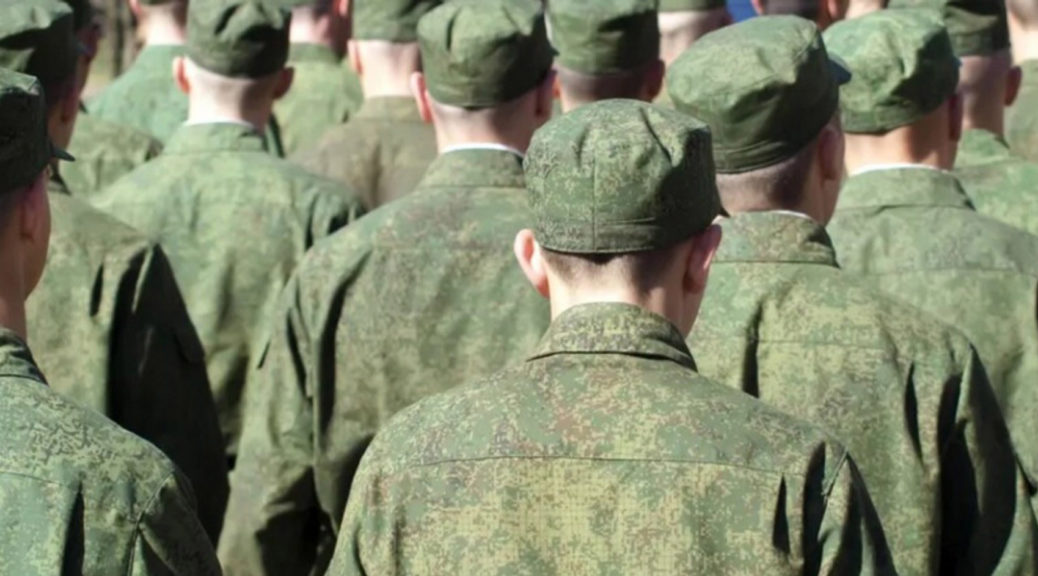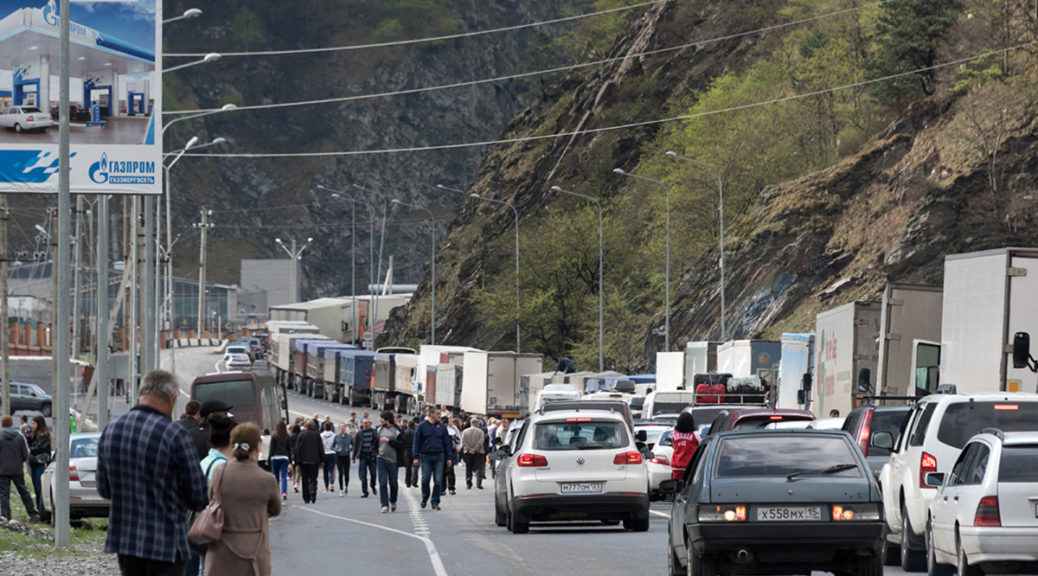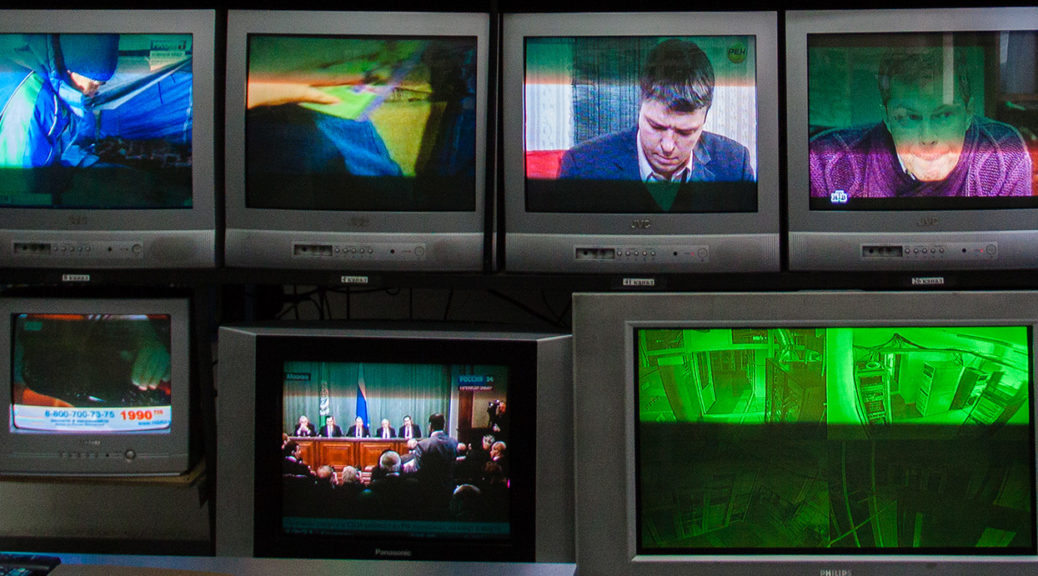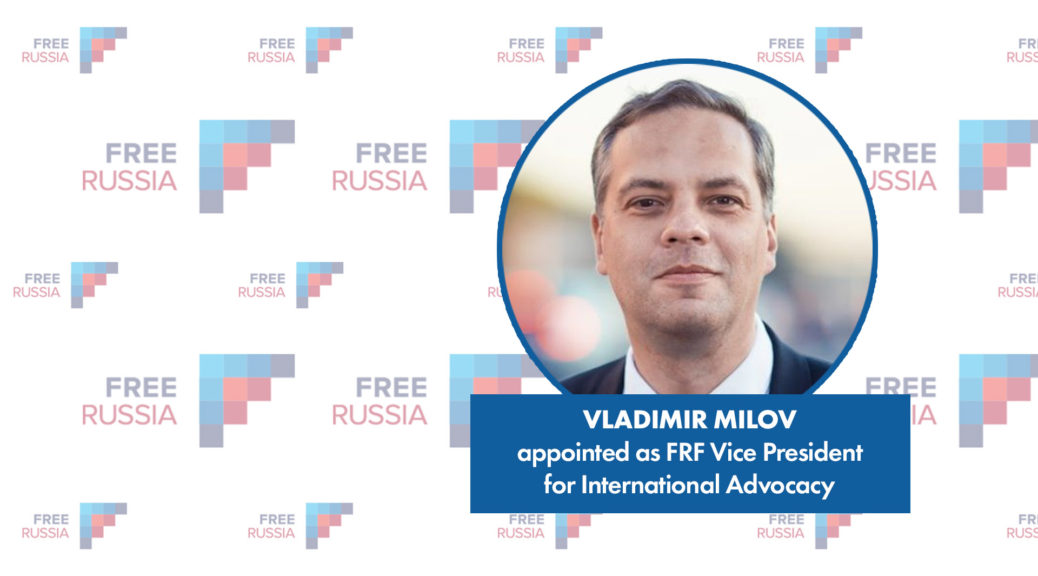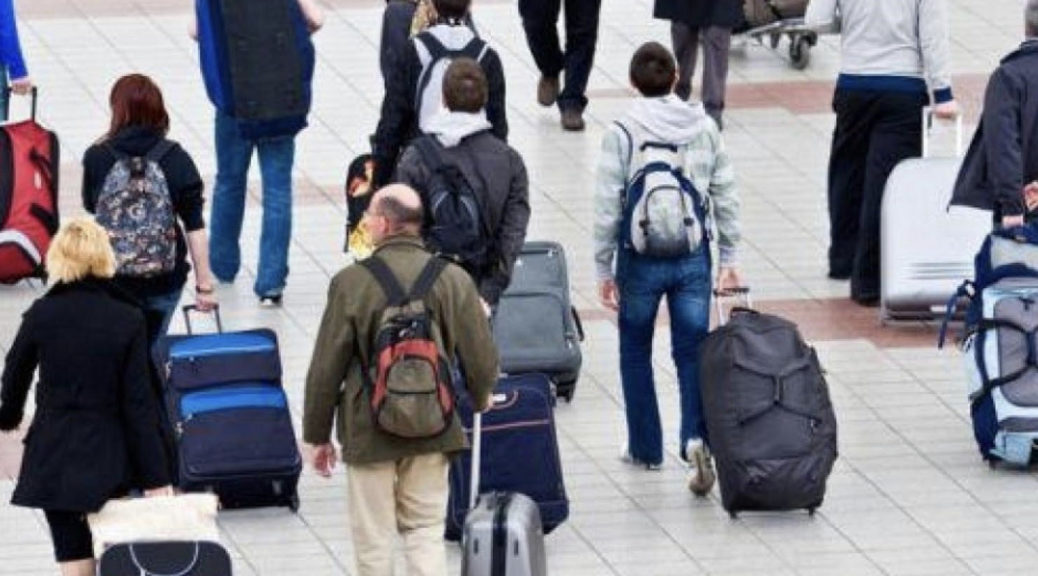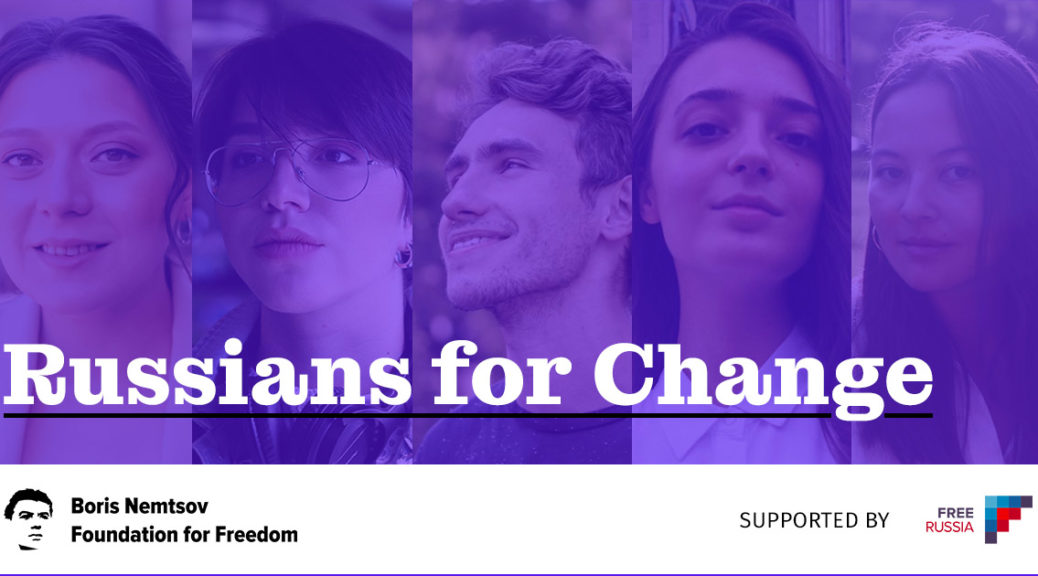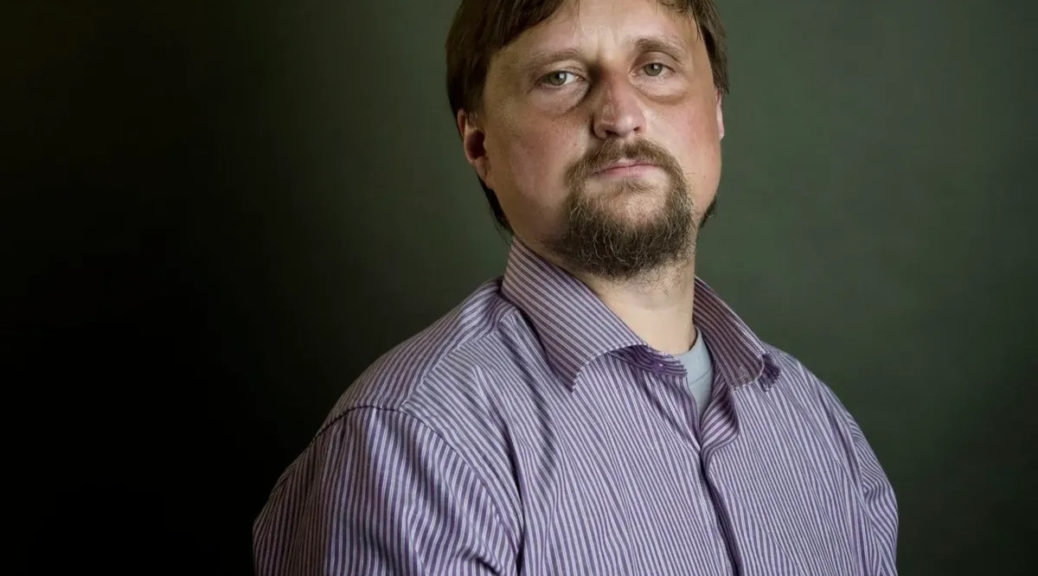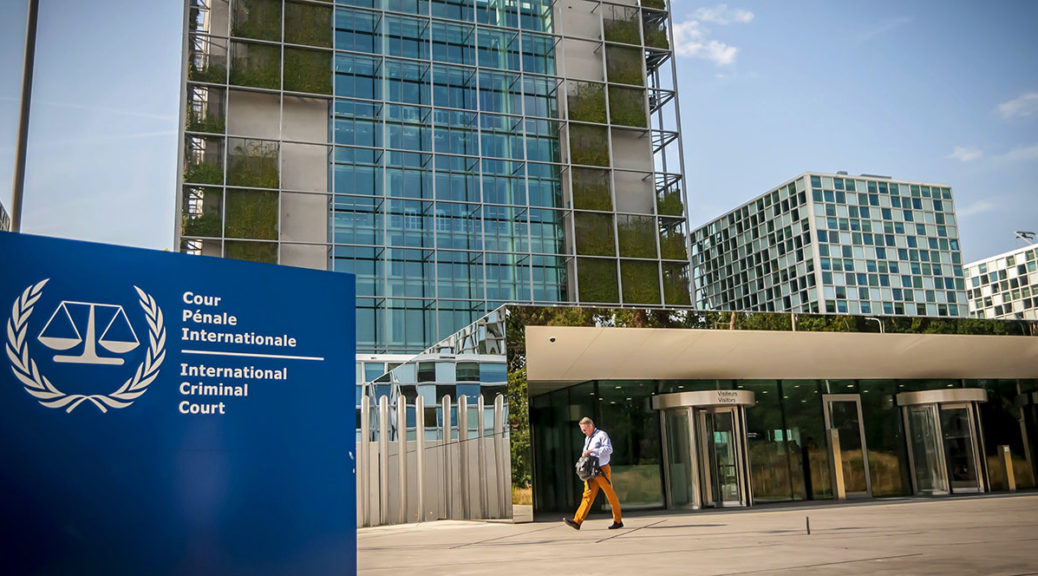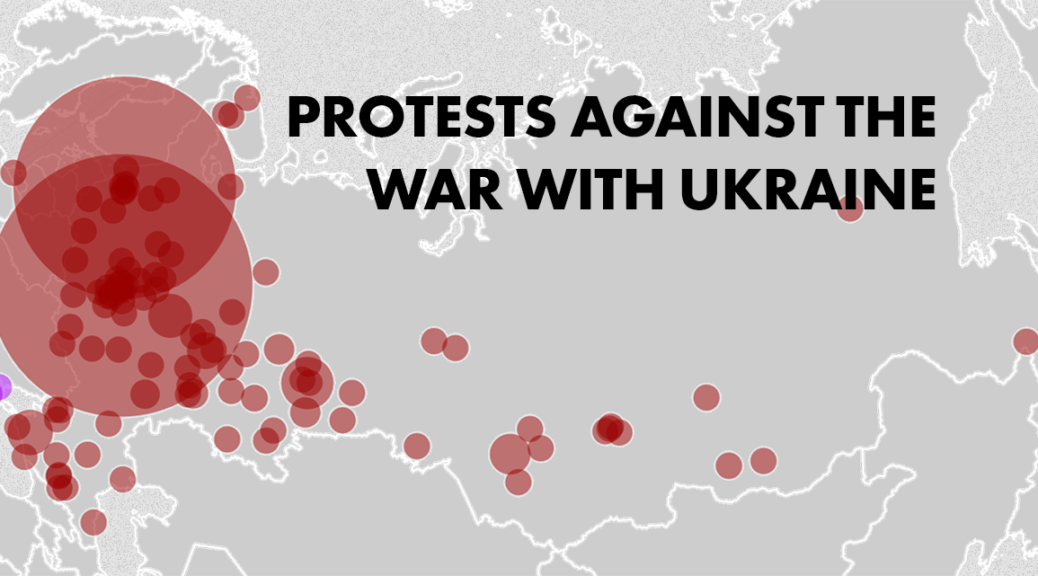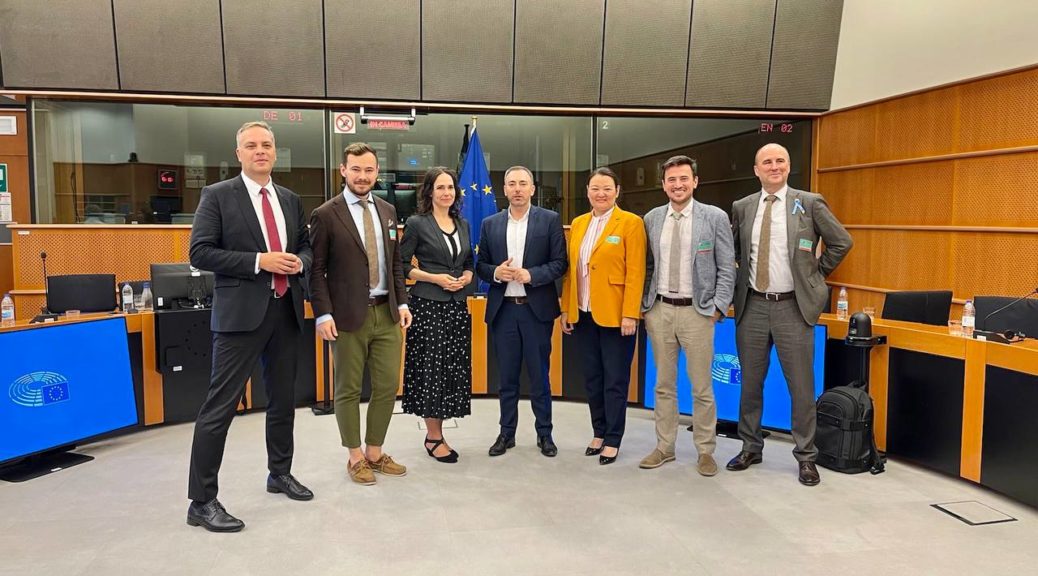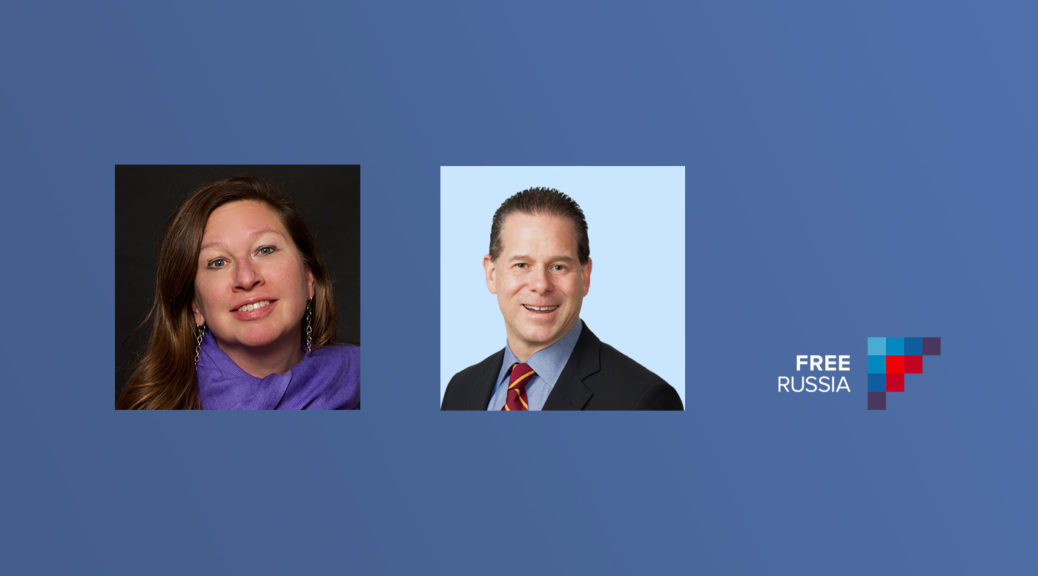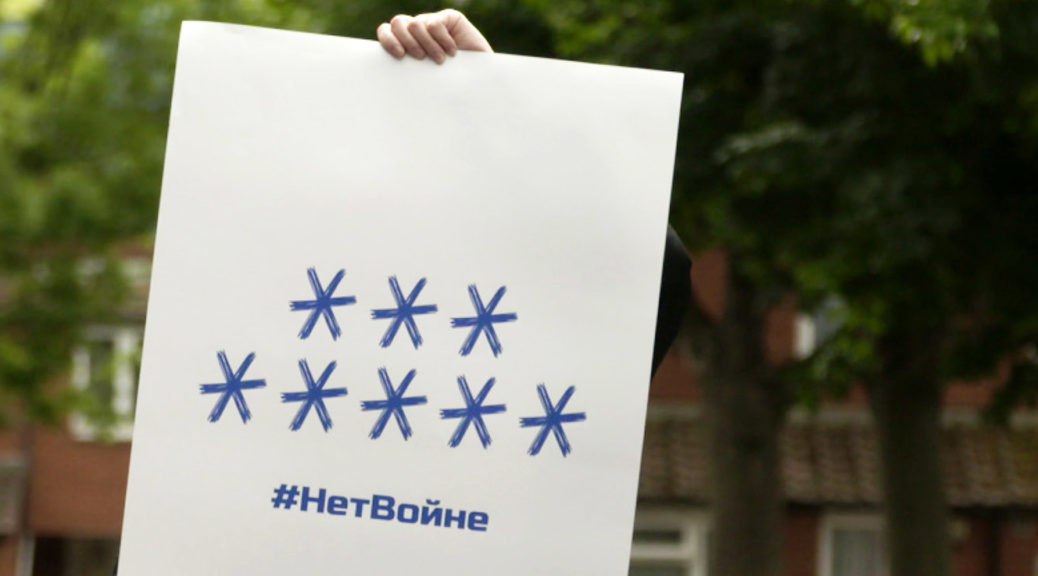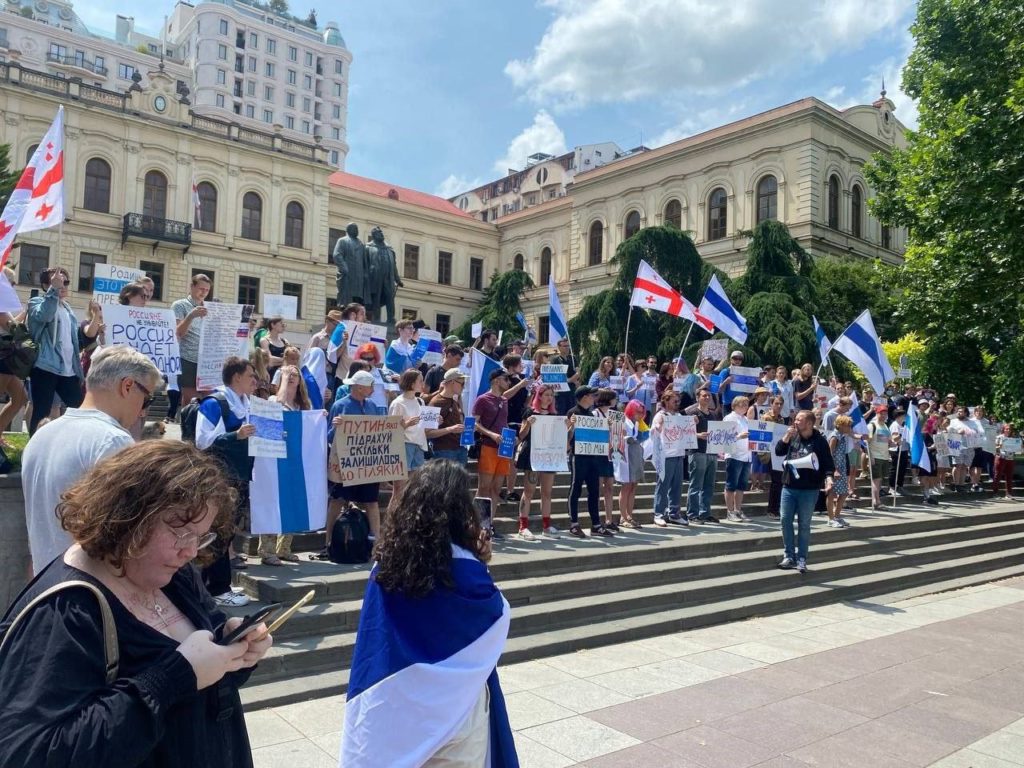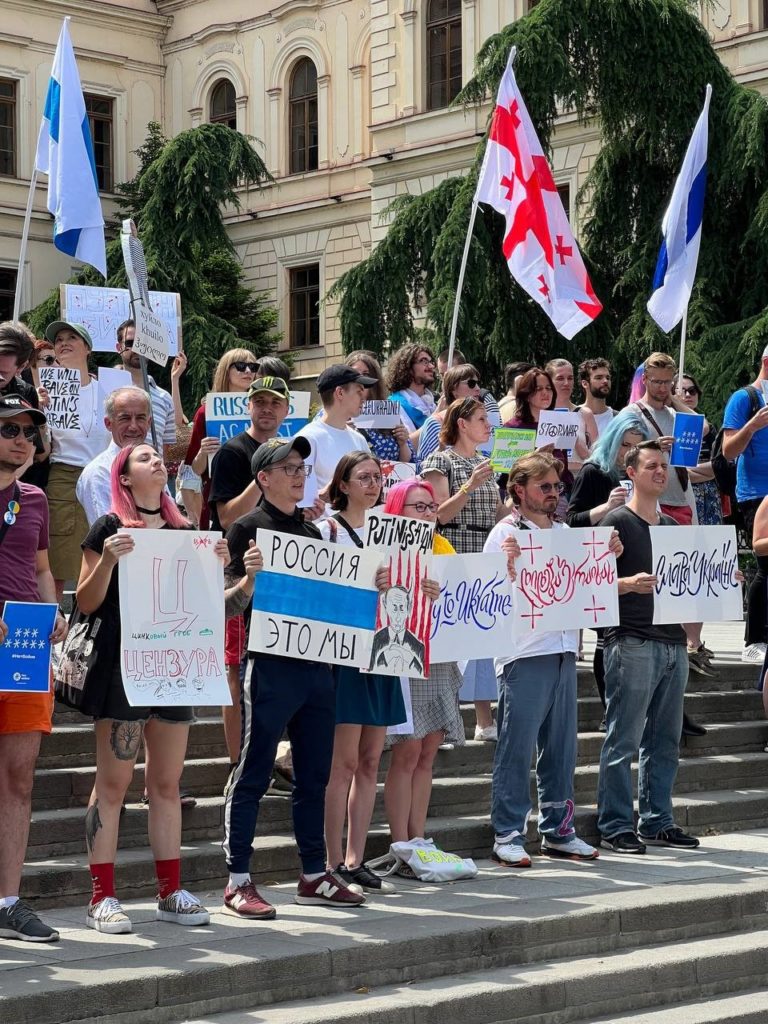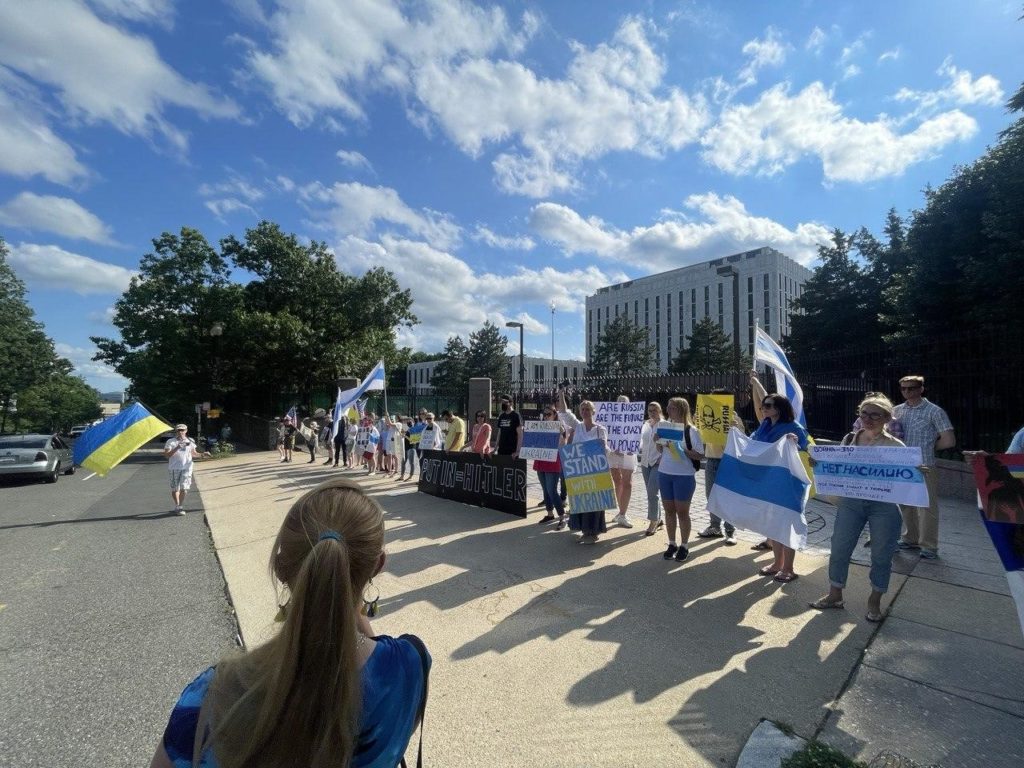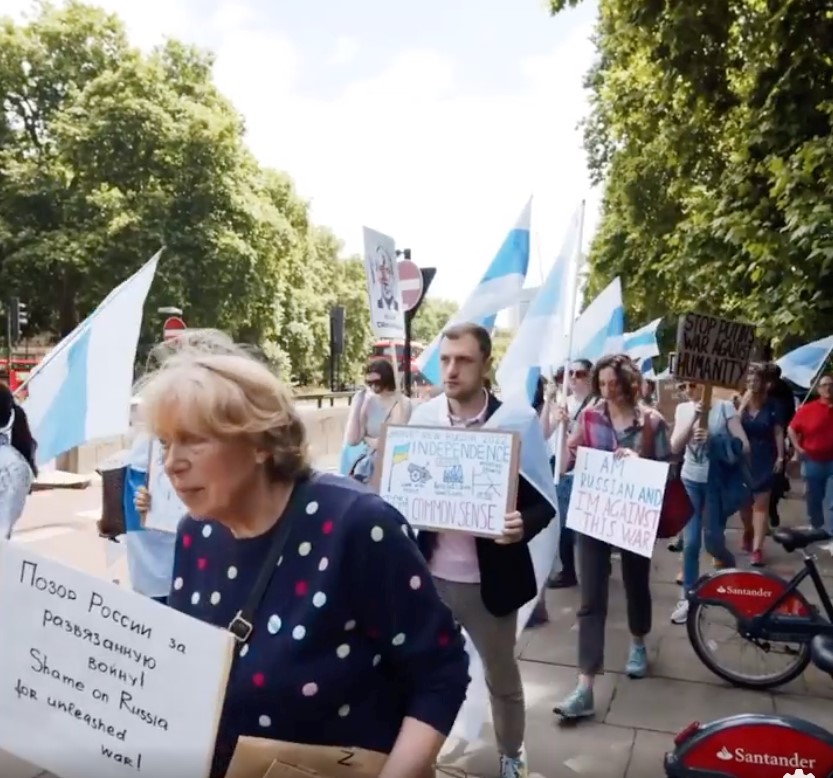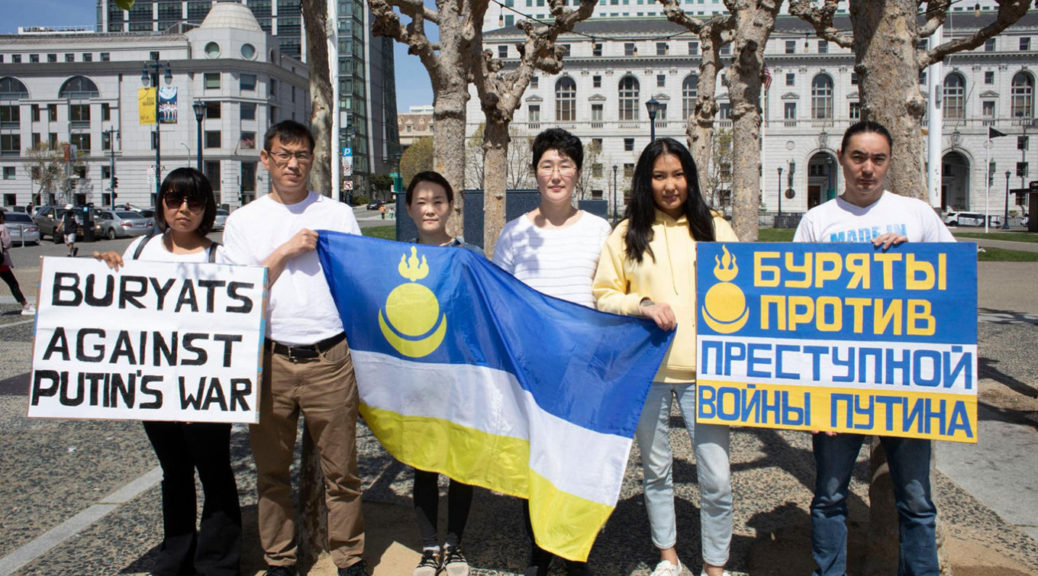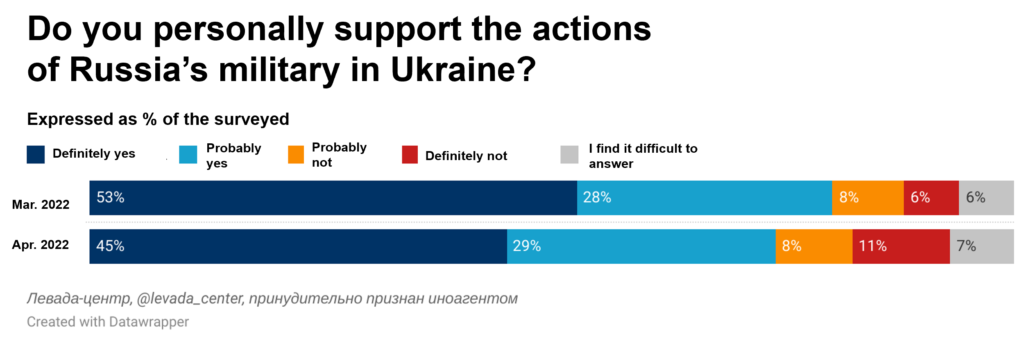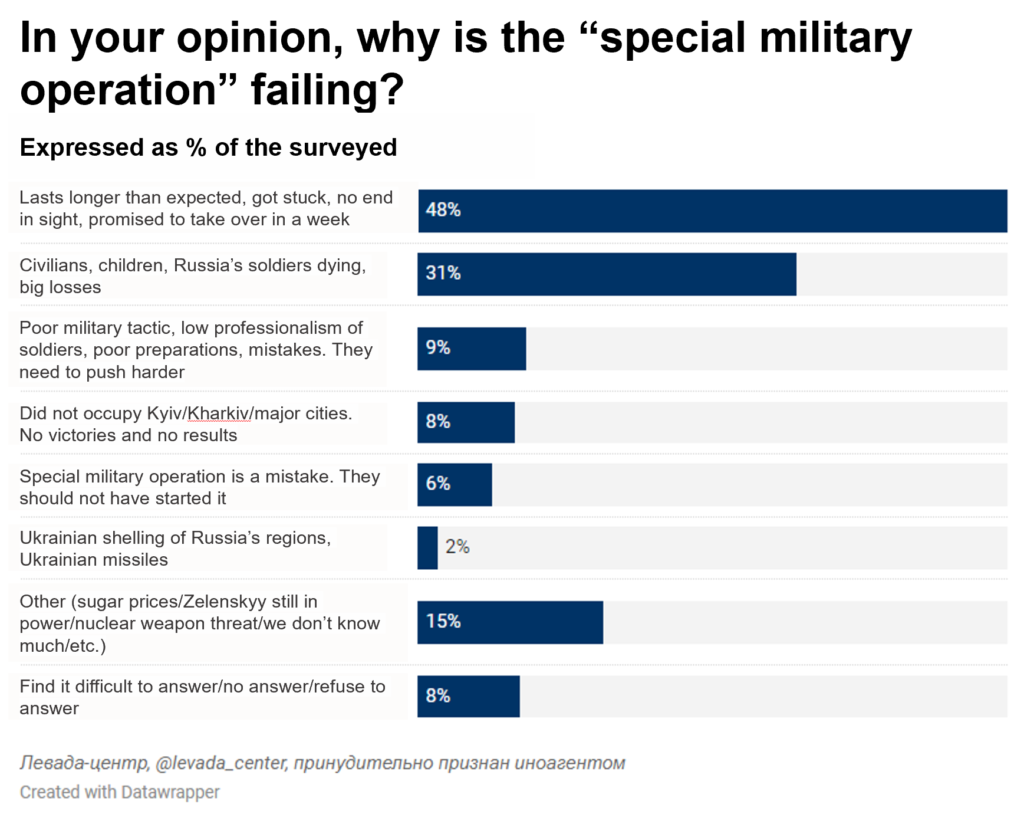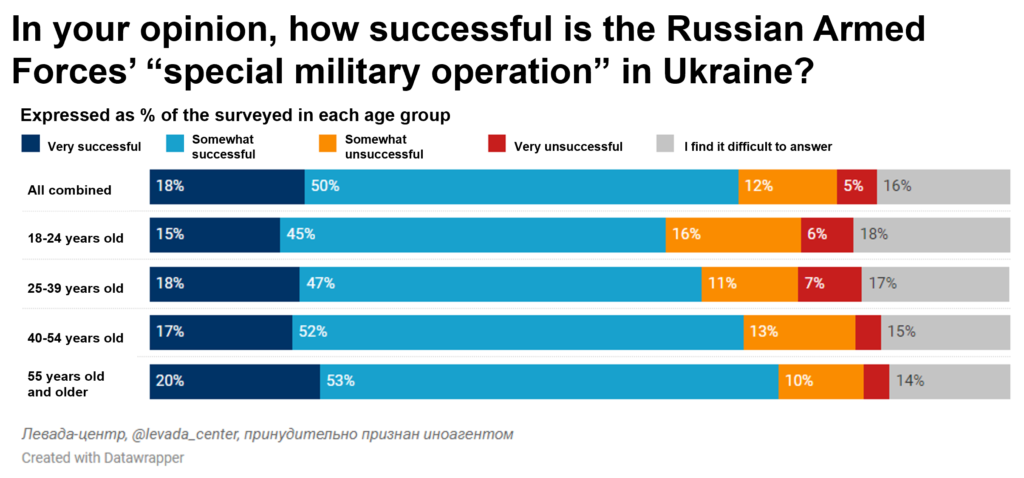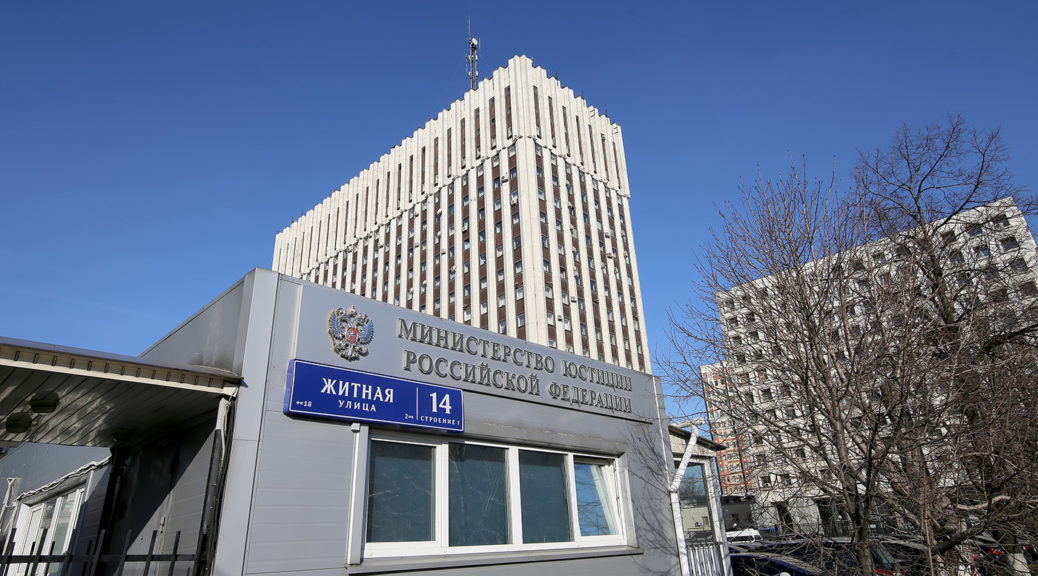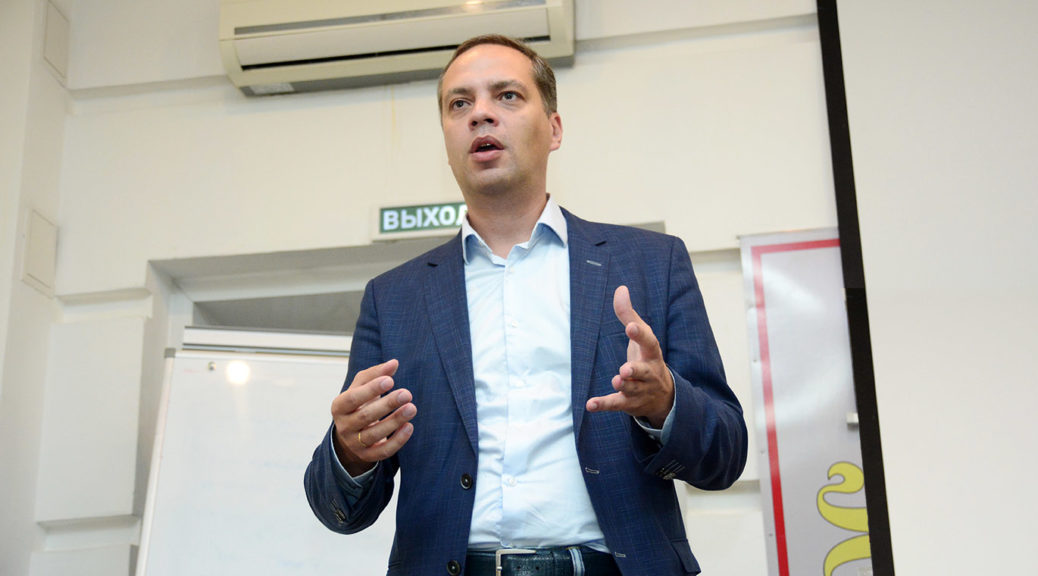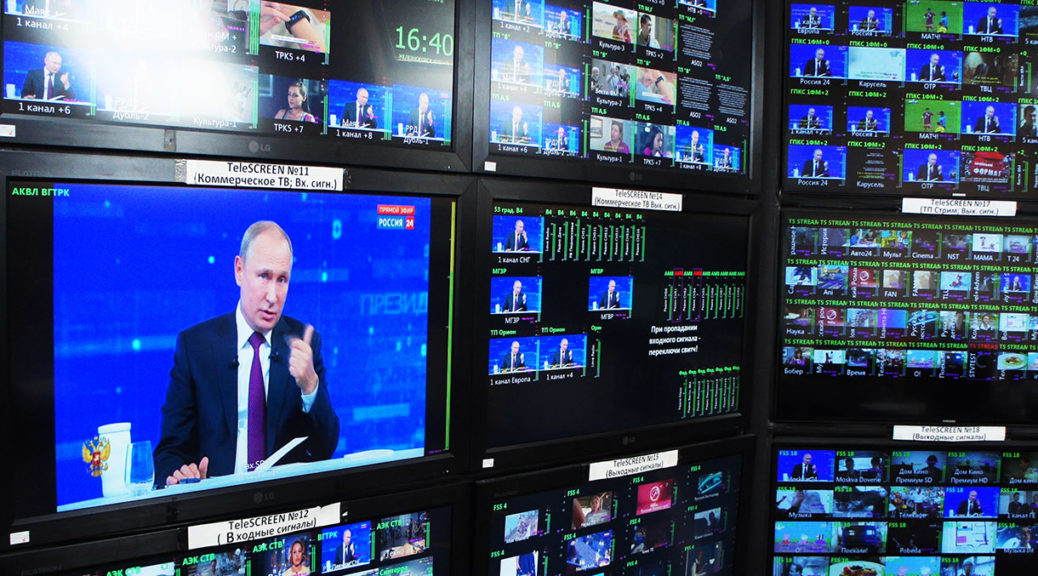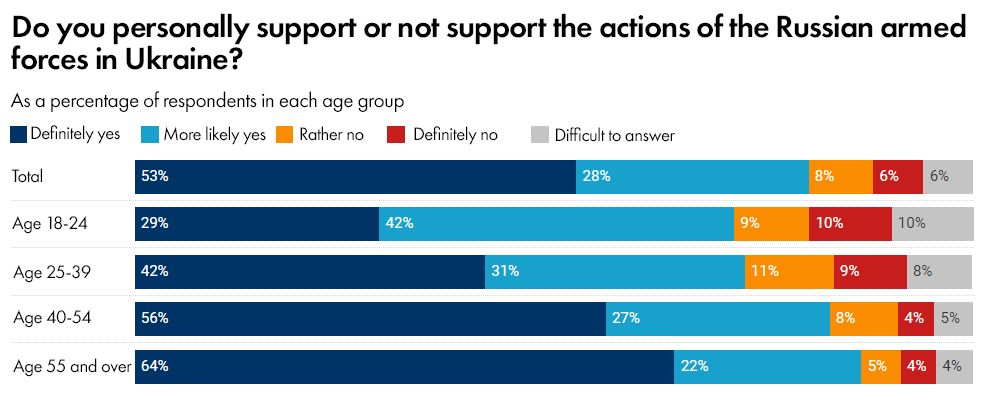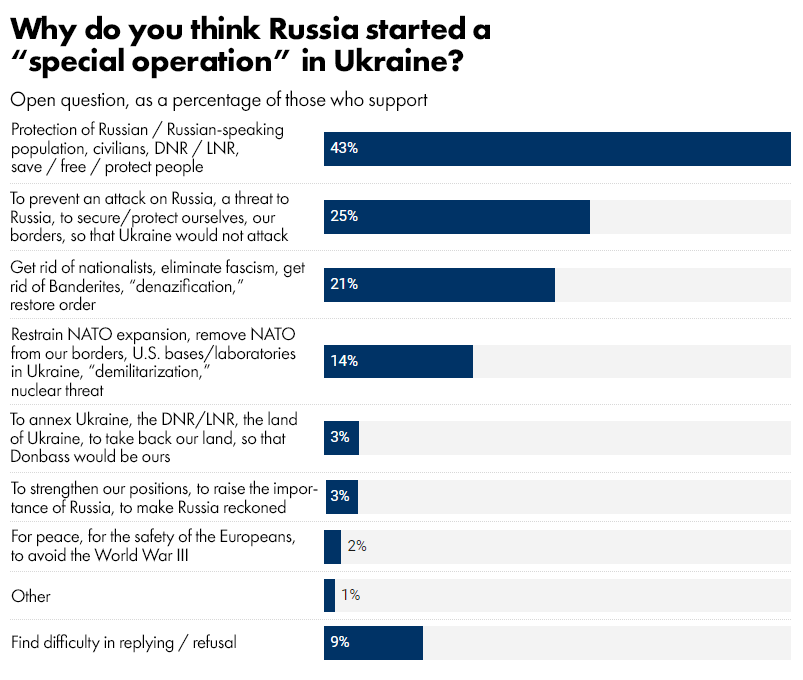Mikhail Savva, a sociologist and human rights activist, who emigrated to Ukraine from Russia in 2015, spoke about his involvement in documenting Russian war crimes on the Ukrainian soil.
Tatyana Felgenhauer, a journalist and former host of the Echo of Moscow radio station (which, similar to thousands of other media outlets, ceased functioning after Putin’s invasion of Ukraine), was among many other independent journalists who left Russia, fearing mass repressions and criminal prosecution for her activities. Over the years, she has written columns for Deutsche Welle, hosted a program on Dozhd TV channel, and blogged on MBH Media’s YouTube channel. Tatiana now runs her own popular YouTube channel and talks to Russian opposition politicians, human rights activists, and experts.
The guest of her latest issue was Mikhail Savva who left Russia at the beginning of 2015 fearing for his safety. Mikhail Savva, a renowned Krasnodar scientist and professor, has been actively involved in public activism for many years. He worked for a non-profit organization Southern Regional Resource Center, lectured at the Kuban State University (KubSU), was Deputy Chairman of the Human Rights Council under the Governor of Krasnodar Krai, served on the Public Advisory Council under the Regional Directorate of the Federal Migration Service, worked as Deputy Chairman of the Krasnodar Krai Public Supervision Commission (PMC) for three years, and monitored human rights situation with Russia’s prisoners.
In April of 2013, Mikhail Savva was detained by the Federal Security Service and arrested on charges of fraud. He was accused of misappropriating funds from a grant received from the Ministry of Social Development of the Russian Federation. Savva was also accused of illegal payments while at KubSU on a scale of more than 71 thousand rubles. On April 2, 2014, the Pervomaisky District Court in Krasnodar found the professor guilty and sentenced him to 3 years of suspended imprisonment with a probation period of two years and a fine. He spent eight months in a pre-trial detention on a fabricated criminal case. He was pressured to confess to subversion and to incriminate another person, calling him a member of some intelligence agency. In the second half of 2014, when Savva was already at large, he was summoned as a witness to another criminal case. From the very first interrogation appointment it became obvious that all these persecutions were launched to put him behind bars again. This is when he decided to move to Ukraine.
Today, Mikhail Savva, former political prisoner on the Memorial list, is the chairman of the board of the Sova Expert Group, an NGO that specializes in the examination of political motives behind criminal prosecutions. He partners with lawyers from around the world, non-governmental organizations, and the Free University, and investigates war crimes committed by the Russian army in Ukraine.
The latter topic, the investigation of the war crimes, was the subject of this interview.
— Mikhail Valentinovich, even before the war began, before February 24th, your biography is quite worthy of a screen adaptation in some kind of a thriller movie: the work within the system, the human rights activities, the cooperation with the governor, the head of the region, the criminal prosecution, the SIZO, the status of a political prisoner, and as a result you are a political refugee in Ukraine. By February 24, 2022, when Russia started this war, when they invaded Ukraine, how did you define yourself by that point: are you a Russian, a Ukrainian, a political refugee, or generally a person above it all?
— I think, yes, you could make a pretty good thriller about “How People Don’t Change.” Because the amazing thing is that it seems to me that I have remained the same all these years since the late 1980s. I did not change, but Russia, my country, has been changing, and changing radically, and, therefore, changing my place in this system. By February 24, I saw myself as an enemy of Putin’s regime. I was no longer a Russian in the full sense of the word. I have a Russian citizenship, but I have been living in Ukraine for 7 years, I have a refugee status here.
I am very closely connected to this country; I love this country. I don’t consider myself Ukrainian yet, although I speak Ukrainian fluently. I have a lot of friends. I am a member of Ukrainian society, yes, but the time has yet to come for ethnic consciousness. Perhaps it will not come, but the fact that I am an enemy of Putin’s regime, that was absolutely certain for me. Otherwise, there would have been no detention center, no court verdict, no immigration. And, so when everything began, I recalled what I was taught very well back in the army, in the Soviet army, during the two years of conscript service: specifically, the algorithm of a prisoner of war. If you are suddenly captured, your first task is to survive, your second task is to escape, and your third task is to inflict damage on the enemy. I already had a very clearly defined foe: the Putin’s regime. I understood that I was at the third stage: I had to inflict damage on them. How, and in what way… The war itself put everything in its place.
War is such a dense stream of events, which carries a man away. Whether he wants it or not, it’s very hard to resist war. You need to find your niche there. It puts everything in its place. In my case, I found that niche very quickly. To be more precise, my colleagues and I from the Expert Council of the Center for Civil Liberties , a Ukrainian human rights organization, talked about what we could do in case of war —just a few days before the start of a large-scale war. On the first day of the aggression, we got together online again and talked about more detailed options: what we would do under the occupation, what we would do if the occupation did not happen, and a few other cases like this. So, I had a pretty good understanding of myself under such circumstances. I was fine. All that was left to do was to act, and so I started.
— But as far as I understand, you started with the territorial defense battalions?
— I first started with the fact that a day after the aggression began, when I realized that the town where I lived (a suburb of Kyiv) would be under the occupation, I moved literally a few kilometers to a neighboring village, to be with my friends who were already in a territorial defense battalion (and I had no other options). Rural territorial defense in Ukraine in those days was a very interesting phenomenon: anyone who wanted could go there. The problems were different: there were not enough weapons, catastrophically not enough, except for light firearms and hand grenades. And not a single person in these small villages in the territorial defense was not officially drafted. That is, there were no lists, no orders, no assignments, people just came and did what they could. I even had a personal foxhole, almost a personal foxhole. We were on duty there together with friends I came to visit. March was freezing, but nevertheless, we worked in shifts. It was important because the Zhytomyr highway was literally five hundred meters away, and we could perfectly see everything that passes along the highway. And the Zhytomyr highway is the main direction that connects Kyiv with the West.
This highway was taken over by the Russian troops literally during the first days. Even though not completely, it was just a small area. But this small area that was taken under control, from Makarovka to Stoyanka, that’s where I was, so we saw everything that was moving along this highway. It was there, that I witnessed and documented the first war crime that happened before my eyes. That began the work, which then went on for several months and continues now (only in a different format), of documenting war crimes. This work is very important (about 50 percent of my time during the war was devoted to documenting war crimes to the west of Kyiv along the Zhitomir highway).
— Mikhail Valentinovich, I want to talk to you about the documentation and how war crimes are recorded in general, but I also want to talk about the territorial defense, about how you, a doctor of political science, sociologist, human rights activist, found yourself in a trench with a weapon in your hands: did you have any doubts on whether or not to take a weapon?
— I would have loved to be in a foxhole with a firearm in my hands, but I found myself in a trench unarmed because there wasn’t enough of weapons. As I said, there was a very small number of weapons available. As for the people who took weapons in their hands… You know, when I started coming to Kyiv in early March, and we found car fuel, we had to go there for humanitarian aid (we organized our own humanitarian aid deliveries for the village where we lived from Europe). I drove past some military recruitment offices in Kyiv and, these are not legends, I saw it myself, I saw men there, crying, lamenting because they were not taken, well, there, they tried to sign up for the territorial defense, but were not taken because there were not enough weapons. There were a lot of people who wanted to fight.
Once, we were loading a minibus with humanitarian aid for our village, and we were helped by guys from the National Guard unit that was there. We needed to load several tons into the car very quickly, we could not have done it ourselves, so they came. I was paired with a man a little younger than me, and we had to bring a big heavy pallet on such a special device (I don’t even know what it’s called, similar to a dolly), he and I walk up to this cart, he says thoughtfully: “My Ph.D. doesn’t allow me to figure it out.” I look at him and I say, “My two degrees don’t allow either, but we’re going to have to do it, there’s no way out.” And we then loaded everything we needed in there.
People took up arms no matter who they were. Regardless of the extent to which they could use a gun. In my estimation, some [people] would have been more useful in another capacity, but there was simply no way to stop that. In the house where we lived, we packed everything we had in the hallway that could be used as a weapon, just in case. There were hay forks, there were axes, there was this big household sledgehammer. Just in case. Because the threat was absolutely real: we saw Russians from several hundred meters away. They did not enter our village: they moved along the road, they did not have enough forces to occupy indiscriminately, so there was no such direct confrontation. If there had been… well, I did not have and do not have the slightest doubt which side I was on. I am a retired major of the Soviet Army, a former squad leader, I know what weapons are, I love them very much, but in peacetime I have shunned them, because weapons are such a nasty thing … once you take them in your hand, there is a situation where you will need them. But that’s in peacetime, but in war it’s just such a necessity.
— Now, let’s talk about something that you started doing quite soon after the start of the war, as I understand it: collecting and documenting evidence of war crimes. I know that you were involved in proving a political component in criminal prosecutions. When you need to prove that someone is being persecuted for political reasons, you help formulate and analyze this political motive, whether it exists or not. Is there such a story in war crimes or not, how does it work in general?
— Yes, that’s a very good question, relevant, so to say. I spent 7 years, literally from the first days after my emigration to Ukraine, working as an expert with lawyers and providing expert opinions about political motivation behind criminal prosecutions. Cases were very different, but mostly of two types: a person urgently fled somewhere in Europe, for example, filed documents for legalization, and a local judge or migration officer, if it has not yet come to court, just does not understand how you can persecute a person without any slightest reason. Well, I mean, they, I mean, first of all, Europeans, Israelis, Americans, just do not understand this. They have no experience with such cases. And, therefore, a situation arises where this Russian looks like he is not telling the truth. But he is telling the truth. In such cases, independent expertise helps a lot. I did that, and it turned out to be a very useful skill when the war started. Because when you work as a forensic scientist, some very important skills are formed.
For example, consider tough evidence. You’re not allowed to lie as an expert, and you have to provide evidence for everything you state, give all the irrefutable facts and clearly spell out all the dependencies between those facts. In documenting this, it seriously helped. On March 3, literally a few days after the start of the war, there was the first case that literally pushed me into this work, into documentation. We saw a Russian military convoy, a caravan of military vehicles that was driving along the Zhytomyr highway. We went out to get a better look at it, everything was literally visible as in front of our eyes: a combat infantry vehicle (BMP) was in front of the convoy, and then it suddenly opened fire. Two shots, two hits on two civilian cars. Well, I mean, these were ordinary vehicles that still had white rags wrapped around them as a symbol of them not being military vehicles. These cars were not painted in camouflage. There were clear signs on these vehicles that they were not military vehicles. Nevertheless, they were targeted.
On the same day, when it got darker and there were gaps between the Russian military convoys, it was possible to photograph what was left of the two vehicles. I even managed to find the license plates, which were blown off and landed pretty far away. There were three dead people in one car and three dead people in the other. All we could tell was that there were a man, a woman and a child in each car because all that was left was their legs. A 30-millimeter BMP shell literally blew the car apart, sometimes tearing off the top part, but the legs remained where they were. Then relatives of one of the dead, one of the drivers, started looking for him. We knew from the license plate number who he was, and now we know. He was a volunteer, a man from Kyiv, who was taking someone out of the combat zone in his car. He hoped to make it on time. But, unfortunately, he didn’t make it on time. We don’t know who the other people were.
I recorded it all, it was a photo fixation, it was my description that I made as a witness, and then I worked on the documentation as a member of the civil initiative “Euromaidan SOS”. This is an initiative that was created during the hours of the Maidan, the last Maidan, in 2012. It was established to document crimes that were committed against the protesters to protect the rights of these people, and during the war this initiative was renewed. We worked in a video recording mode. That is how it happened in my life, “one day in the life of Mikhail Valentinovich”…
— God forbid anyone such a day, honestly…
— I had those, just not in the Solzhenitsyn format, it was a detention center, but not a Stalinist camp, fortunately. Well, now such a paraphrase is appropriate because it happened many many times. The village where I lived then was not under the occupation, the Russians controlled only the highway, as I said, but they were constantly shelling this village. Why? I cannot say, because apart from the posts of territorial defense, there was nothing in this village, there were no units of the Armed Forces of Ukraine there and then. There were never any military facilities, military units, nothing but a sawmill, nothing at all. And a farm where they grow mushrooms. Nevertheless, every morning, very early, there was shelling, and when it was light, I would go either by car or on foot, if it was close, to the neighbors who had “arrivals”.
There were many hits. Fortunately, there were no fatalities, although sometimes the fact that no one died was just a miracle. I was recording the results of the Grad rocket launcher shells landing in the backyard of a retired village teacher with a profound disability. A grad shell exploded five meters from her house. But he went under a concrete slab (such massive slabs paved her yard), he went in, the explosion put this slab literally vertically, and this slab took the entire impact. If it hadn’t been there, this woman wouldn’t have been alive, there wouldn’t have been this shack, but even the windows were still intact. Such miracles happen at war. They flew in very often. They flew in, including one that was very close to the house where I lived. The closest arrival was 80 meters away, fortunately, on an empty lot, and it was a Russian tank shell. Shrapnel went into the house of another of my neighbors, who moved out. And when he phoned a couple of days later, my neighbor and I explained to him that no, there was no need to come, no need to repair the roof. The roof was fine, you just have a gate now, you know, a design. And his three-millimeter-thick metal gate turned into such a sieve, which, really, no designer had ever projected.
There were a lot of cases like that. This is also a war crime, I mean the indiscriminate shooting of civilians and civilian infrastructure without any slightest military necessity, —and we have also documented this. As of today, our public initiative “Euromaidan SOS” alone has recorded over 9,000 war crimes of all kinds: murders of civilians, rapes, destruction of civilian infrastructures, destruction of residential buildings, demolition of cultural monuments, well, even driving a tank over a cemetery. Some Russian tank crew wanted to drive over cemeteries, and it damaged several dozen graves, went somewhere into the field then into the forest. Then we found a burnt tank there, I don’t know if it was the right one or not, but I hope it was the exact one.
— The fact that you have documented all kinds of crimes, serious, very serious, monstrous crimes, does this have any kind of a procedural status, can you pass this on to investigative groups, or is this the amount of information that will now be accumulated, and then someone else will decide what to do with it?
— Investigative teams are already working with this material. There is a database of war crimes, which is inaccessible to almost everyone except for the Ukrainian and international law enforcement agencies. From it, cases are selected based on urgency, examined quickly, including the investigators of the International Criminal Court. Some refer to it as “The Hague Tribunal”, yes, there are tribunals there, but a large group of inspectors work there, they come to Ukraine, and this base is open to them as well. The accumulation of evidence continues, you are right, and the accumulation is very important, because such a record of war crimes allows, first of all, to try to bring to justice everyone who is guilty, from an individual or a sergeant who committed it, to those who are the leaders of the Russian regime, who created the conditions for the execution of such crimes.
But another important thing is that in the war, people just vanish very often. When we document crimes, we are sometimes able to find traces of these individuals. I’ll return to that incident along the Zhytomyr highway. The next convoy of Russian vehicles just scattered the remains of these cars. And if we had not taken the photos, these people would have simply vanished into oblivion, everything, as if they never existed. Because there were only partial remains of the human bodies, parts that would then just inevitably disappear. So that’s an important task, too. These people are being looked for, they have relatives, they have loved ones who would rather know where and how the person died than not know anything, as in many cases.
And one more point, I will just mention it: this is such an important, long, separate topic. A large file on war crimes allows us to analyze them, because when we know what was committed, it is much easier for us to conduct an examination of who and how created the conditions for these crimes. And here I recall the trial of former Yugoslav President Milosevic, who did not give orders to kill civilians or rape women, but he was convicted. He was judged precisely because there was a huge amount of confirmed evidence of war crimes, and then there was the expert work, which proved that it was he and the people around him who created such conditions that soldiers of the Yugoslav army were committing crimes en masse. That is exactly what is being established right now. That being said, the International Criminal Court has a very high standard of proof. From what I know, it’s the highest standard of proof. They don’t have that many criminal cases that come to a verdict. So, you need a very skilled expert to work there, and I’m very glad that I’m one of the elements of this complex expertise in proving their guilt.
— Tell me, about the documenting: how would you rate Ms. Denisova’s work? How much damage has she done to the work that you’re doing?
— No, I don’t think she did any great damage from a legal perspective. She was talking about sexual assaults of children, with the evidence base not yet assembled by that time. I would not be surprised at all if, after a while, it turned out that her estimates were about right, that it really was a mass phenomenon. It was just when confirmation and evidence was needed that she was unable to provide it. But you have to understand that establishing such proof is a complicated task, it takes time. When it comes to sexual offenses, it’s incredibly difficult. People don’t want to talk about it. People don’t even want to talk about things that have nothing to do with sexual assaults, they’re just scared.
When I came to Bucha, to Yablunska Street, where the largest number of people were killed by the Russians, there was just their base. The vehicles were just standing there, there was their headquarters. We just went through the backyards, we knocked on every gate, and when people came out to meet us, and some houses were already empty, we asked, “Were you here during the occupation?” — “Yes.” — “And are you willing to talk about what was here on camera and give your last name?” And in many cases we heard, “No, I’m not.” People are terrified… And when all the horror of a sexual assault is added to that, it’s very difficult to get testimonies.
There’s another point, which is absolutely objective, and Ms. Denisova certainly had no influence whatsoever on this. Many victims of sexual crimes from Ukraine have left for Europe. They departed for two reasons. First, they don’t want to stay in that social environment where they know what happened. And second, they needed very serious, very deep psychological rehabilitation. I know one such case: literally a few blocks from where I live, one of the volunteers, an acquaintance of mine, I can already say my friend, who used to come here when this area was under the occupation (he would bring food here, we would load him up, they would drive two electric cars, we would load him up with food, and then he would take people back and then drive on), and once he transported a woman, well, a girl of 15, who was actually raped for several days, who miraculously got out. She was sent to a Baltic country, and the girl is still being rehabilitated there. To expect any kind of testimony in such a state is simply impossible. It would worsen the psychological state of the victim.
— A clarifying question about Denisova’s situation: it’s just that she herself admitted that she exaggerated some things, if not invented them; do you as an expert question everything around you in general? Or are you, after all, biased?
— As an expert, I question absolutely everything, so in the course of the documentation I listen to and record one person, but when the investigative team starts working, they work with that comprehensively. My task as an expert is, firstly, to record, and secondly, to gather as much clarifying information as possible through interviews. I must be psychologically and emotionally neutral, I must not send any signals during the interview (I remind you that video recording is in progress, that is, I talk and at the same time it is recorded on camera), I must not give any clues, I must not emotionally exacerbate person’s condition, I must get information from that individual. The kind of information that can be checked later.
— Mikhail Valentinovich, you have been in Ukraine since 2015, and all this time you have dealt with the situation in Donbas in one way or another. So, when asked “Where have you been for eight years,” you can tell everyone exactly where you have been, and you have seen exactly what is happening on the line of demarcation in parts of these self-proclaimed entities and everything that was nearby. Who needed help there in the first place. And over these eight years, what mistakes would you highlight both on the part of the Ukrainian administration, because it was there all the time, and maybe the European Union, which, in general, took a calm attitude toward the annexation of Crimea and toward what was happening in the eastern Ukraine?
— Yes, I have traveled to Donbas every year since the fall of 2015, sometimes for long periods, sometimes for months. I have the feeling that I have been there in every “hromada” (that is, every settlement). Yes, at times I was asked to wear a bulletproof vest on the line of demarcation because it was literally the border. I worked as an expert, as a consultant for international programs, and in the course of this work I got a lot of information about the attitudes of the people, about what was going on, and I can draw conclusions about mistakes very confidently.
In one of the focus groups I moderated, we were talking about sources of information for local government, —what is needed, what is missing, and one of the participants, a local deputy, as I recall, suddenly said: “And you know, I watch Russian TV channels in general. I don’t watch Ukrainian channels because life is complicated enough! When I turn on a Russian channel, I wonder how beautiful it is! Successes, achievements, flights into space, solving problems, everything is so great… But when you turn on the Ukrainian channel, well, here’s some life, why do I need it?”
That was one of the main problems of the Ukrainian government, a problem that persisted until the beginning of the large-scale war in 2022: the information flow. In some bordering regions of Ukraine, there is very little or no Ukrainian television broadcasting. People watch Ukrainian proigraming, if we talk about the west of Ukraine, Poland, Hungary. If we talk about the east, they, unfortunately, watch Russian broadcasts. This is also a problem of coverage, just a problem of television towers, these transponders of the Strugatskys, of which there are fewer on the Ukrainian side. And it’s a problem of the content of this information flow. Democracy is always harder. In a democracy, the journalist works with information, they deliver facts, and these facts are far from always being pleasant.
When we talk about a non-democratic society, an authoritarian society, and now Russia is moving very steadily towards a totalitarian regime, toward neo-totalitarianism, there are far fewer journalists, and these people are mostly engaged in propaganda. They maipulate consciousness in order to change one’s point of view. And this requires a positive picture, something that one wants to portray in a good light, and hatred and denial of enemies. This is exactly the kind of information flow supported by the Russian propaganda stream, in which the inhabitants of Donbas have lived for several years. I can honestly say: you need a very powerful patriotic inner strength to withstand this struggle with Russian propaganda.
And now, by the way, I noticed that literally in the second echelon of the Russian occupation troops, along with the Rosgvardia, there are engineers who are working on the reconfiguration of television towers. That is, the Russian regime sees what it has been able to do to the Russians with the help of propaganda, and it plans to do the same to the Ukrainians in the occupied territories.
— About contacts that are now possible or impossible: in the field of human rights, legal assistance, do you see any possibility for Ukrainian human rights activists and lawyers to work together? There are prisoners on both sides.
— I don’t just see it, but we’re working on it. We do this literally on a daily basis and in a variety of formats. Just recently, after one of the meetings with the Russian and Ukrainian human rights activists, we created a joint monitoring working group on prisoners of war. There are Russian prisoners of war in Ukraine and Ukrainian prisoners of war in Russia. We need to understand the conditions under which these people are held, whether their rights are violated, whether they are tortured, whether politically motivated criminal charges are brought against these people, and whether they are allowed to communicate with their relatives or at least to tell them where they are (we have no information about many people).
This is a huge field of work, and we have to cooperate here, there’s just no other way. Because I can’t imagine how a Ukrainian lawyer would go to Russia to defend Ukrainian prisoners of war and a Russian lawyer would come to Ukraine. It is simply impossible. At the same time, there are Russian lawyers who are willing to work in good faith to protect Ukrainians in Russia, not as “nodders” and not as servants of the investigation.
— Is there any way to find out what happens to Ukrainian prisoners of war who are now in the hands of people from the so-called DNR and LNR? We recently talked to Vladimir Osechkin from Gulagu.net, and he told us that it is the worst in such areas, not in Russia, but in areas where there is complete lawlessness. And he was talking specifically about torture.
— And he is absolutely right. These unrecognized states are a legal no man’s zones, where formally there are some local laws, but in fact no one has ever observed them. There is indeed torture there, there is indeed an information vacuum. We simply do not know where these people end up. In very rare cases when someone manages to escape through an exchange, we study information about the conditions of detention. And the conditions of Ukrainian prisoners of war in these DNR and LNR do not meet any standards. Even worse, these legal black holes officially have the death penalty. And now they, or rather not they, but the Russian Federation is blackmailing the world with the death penalty against POWs for alleged crimes “against the people of Donbass.”
Such sentences are handed down to foreigners who are members of the Armed Forces of Ukraine. There are already two death sentences for Brits and one for a Moroccan with Ukrainian roots. And this is done with one objective: to force other countries to talk to these non-recognized quasi-states, and to somehow legitimize them, somehow bring them into the political field. This is a crude political blackmail, which is terrorism in essence. But even in these areas it is possible to at least try to establish control over rights. I am not only referring to the Red Cross, but also to the people who have the authority in the local administration to monitor the observance of the rights of prisoners of war. They are citizens of Ukraine, and they know very well that if they constantly and grossly violate international law, they will be punished. Accordingly, they are motivated to cooperate. The countries will not cooperate with them, but for public organizations it is quite possible. And we are now trying to establish this process.
— One question on today’s most current agenda: Vladimir Putin has ordered that all Ukrainians should be granted Russian citizenship under a simplified procedure. Is he doing this out of desperation? What kind of strange thing is this?
— No, this is an absolutely normal political move. He wants to demonstrate that Russia is attractive to Ukrainians. He wants to show that despite everything that is going on, Ukrainians are attracted to Russia, they find protection there, it is such an attempt to distort the image. This is also a calculation, such, you know, a statistical calculation. There are just a lot of Ukrainians stuck in Russia. According to the most conservative estimates, on the eve of the war, about 2 million citizens of Ukraine who permanently resided in Russia. Some got married, some worked there. When the war began, the opportunities to return decreased dramatically. And now these people are in a very difficult situation — they are under pressure, and they have to make a choice: either they return [to Ukraine] (which is through third countries, through Europe, for example), or they accept a Russian citizenship. Thus, Putin has an opportunity to show that Ukrainians are massively ready to accept the citizenship of the Russian Federation. The fact that this is done out of desperation does not deter him.
— As someone who was a political prisoner and had to flee the country, how closely do you follow what’s going on in Russia in terms of politics and repressions?
— I keep track not only because of my biography, but also because I am regularly approached by the Russian attorneys for expertise. Now there is a myriad of cases under Article 207.3 for fakes about the actions of the Russian army and state authorities. It was introduced literally in March, and there have already been more than 60 criminal cases under this article. There is a similar article in the Administrative Code, but it counts in the thousands. There is already a real sentence for a municipal deputy, several people are in pre-trial detention, and they are charged with the part that involves being locked up in a detention center. A person is essentially held under the torturous conditions.
— This is a political, blatantly political article. In the past, the Putin regime came up with some options to fight the opposition. For example, Alexei Navalny was always jailed under some economic articles, and I’m not even talking about Khodorkovsky. Somehow, all the time they are coming up with ways to pretend that this is not politics. But here it’s just political articles.
— Yes, in their pure form. These articles have no right to exist at all! They do not only contradict Article 207 and the like — the Constitution of the Russian Federation, they contradict the International Pact on Political and Civil Rights. It simply should not be the case when a person is put in jail for disseminating information. It is a recognized as a constitutional right to collect, store, and disseminate information by any legal means. And when such an article is introduced, one must understand that it is being done out of despair. Because information about what is happening in Ukraine, if it were open and accessible, would simply overwhelm Russians.
It is impossible for a normal person to withstand this and remain a Putinist patriot. There are a lot of abnormals there already, I understand that, but still, for a large part of people, it would be such a sobering drug. So the information is being shut down, shut down in an absolutely illegal way. And the very article is so insidious, because it says that the punishment is allegedly for disseminating false information. False information is not a reason to prosecute a person, but even this restriction is not observed by Russian prosecutors. Because knowingly false information is something that contradicts reality. And people are put in jail because their information contradicts the data from the Russian Ministry of Defense. I’ve read the indictments, I’ve read the so-called “expertise” of Russian so-called “scientists” who support these charges. They directly say that “this information is knowingly false, because this is not what was said in the Defense Ministry briefing.” It’s just a legal nightmare that Russia is now plunged into.
— Could this become another point of accusation at the international court?
— It will. It certainly will!



